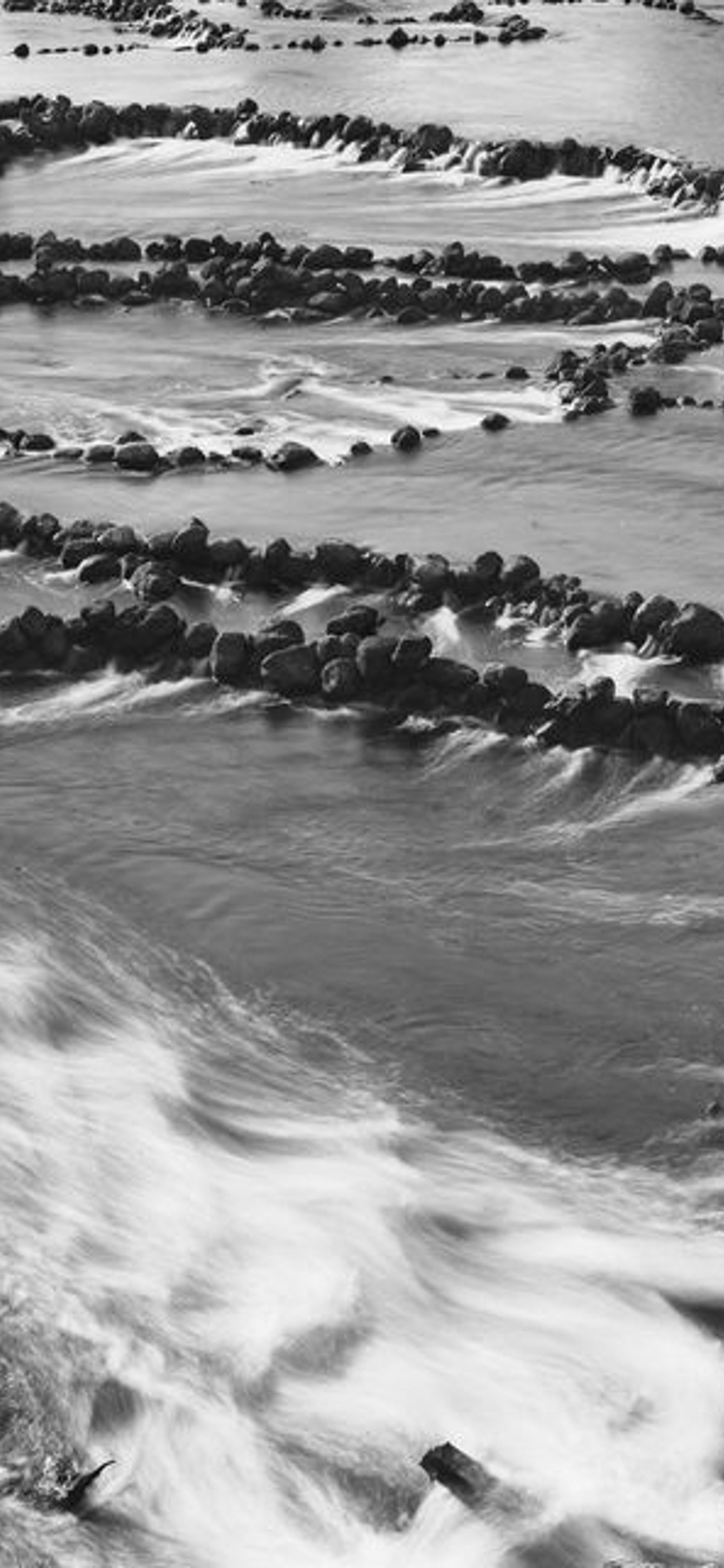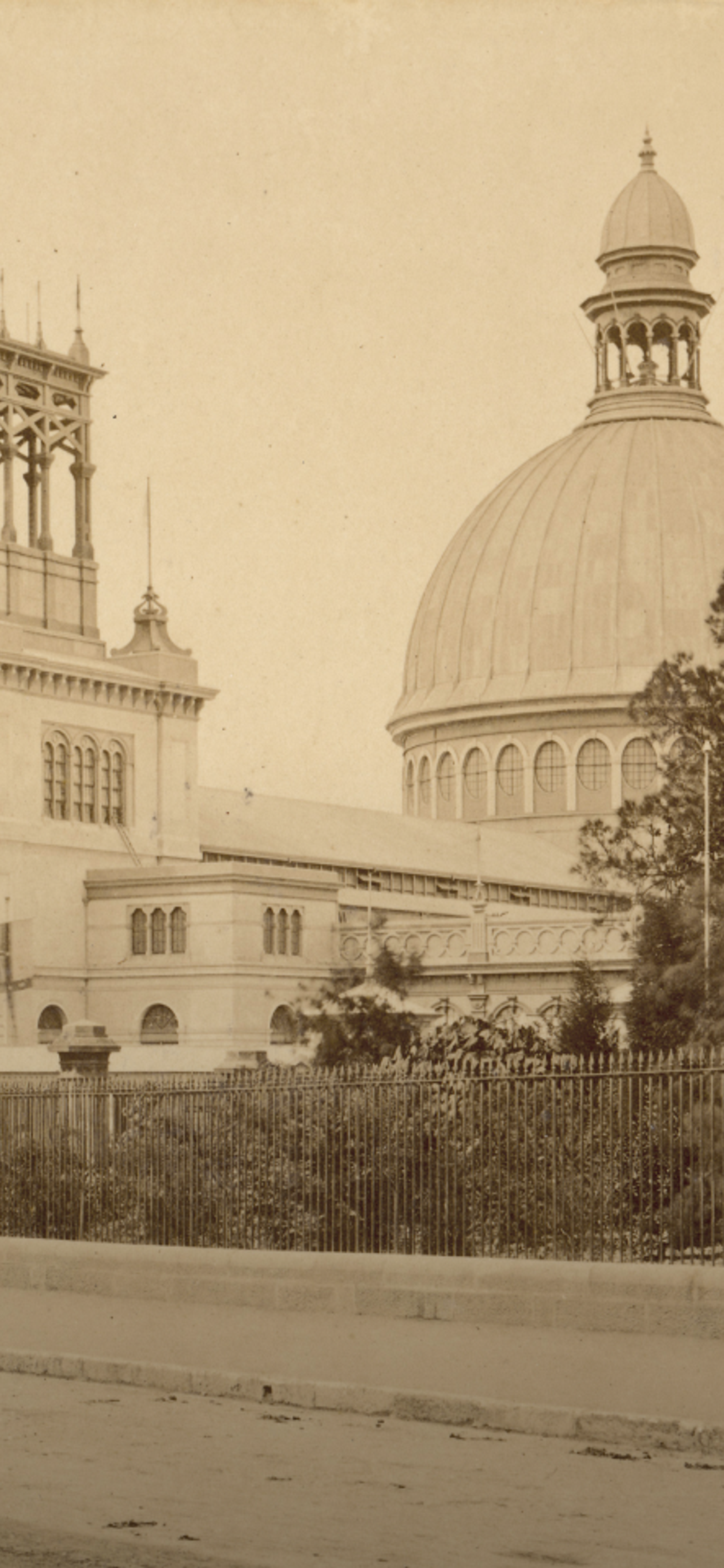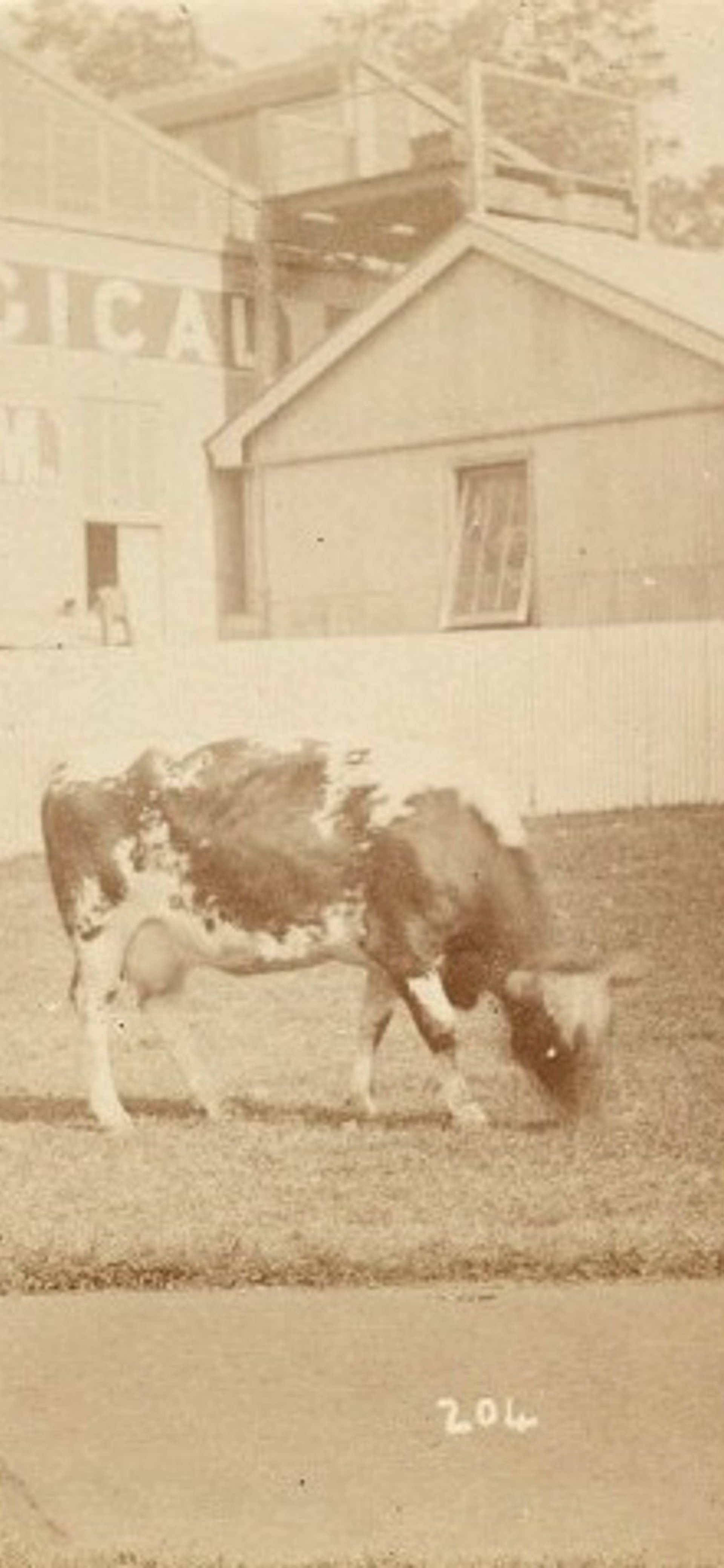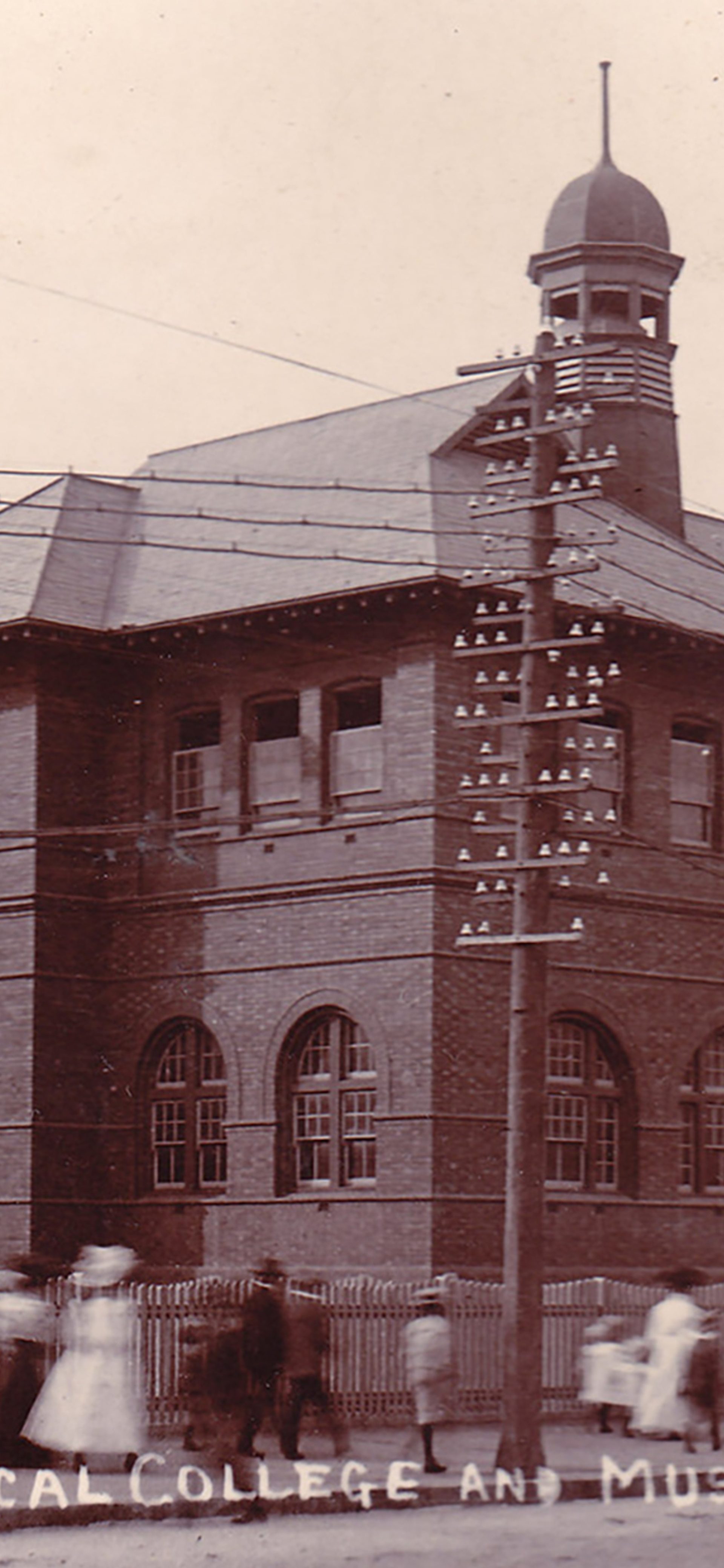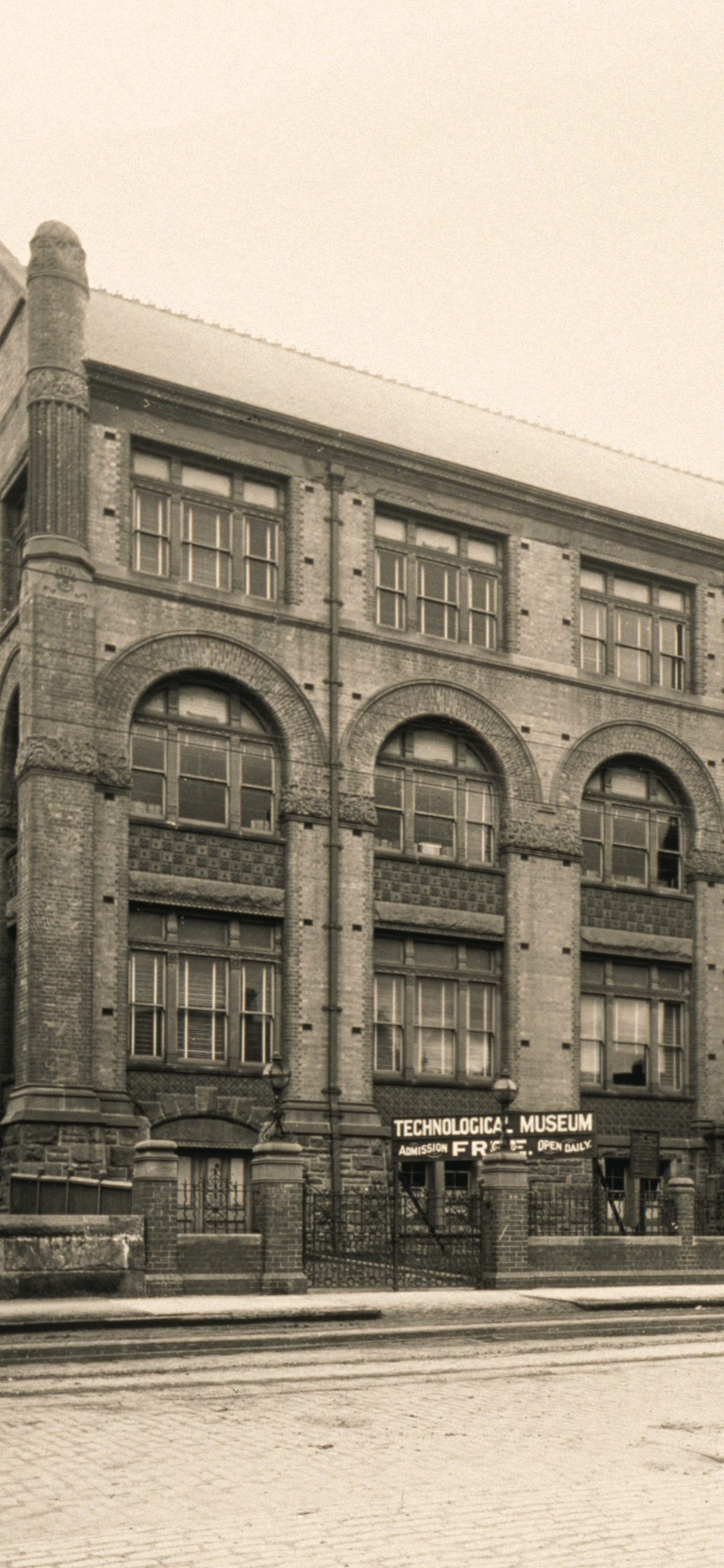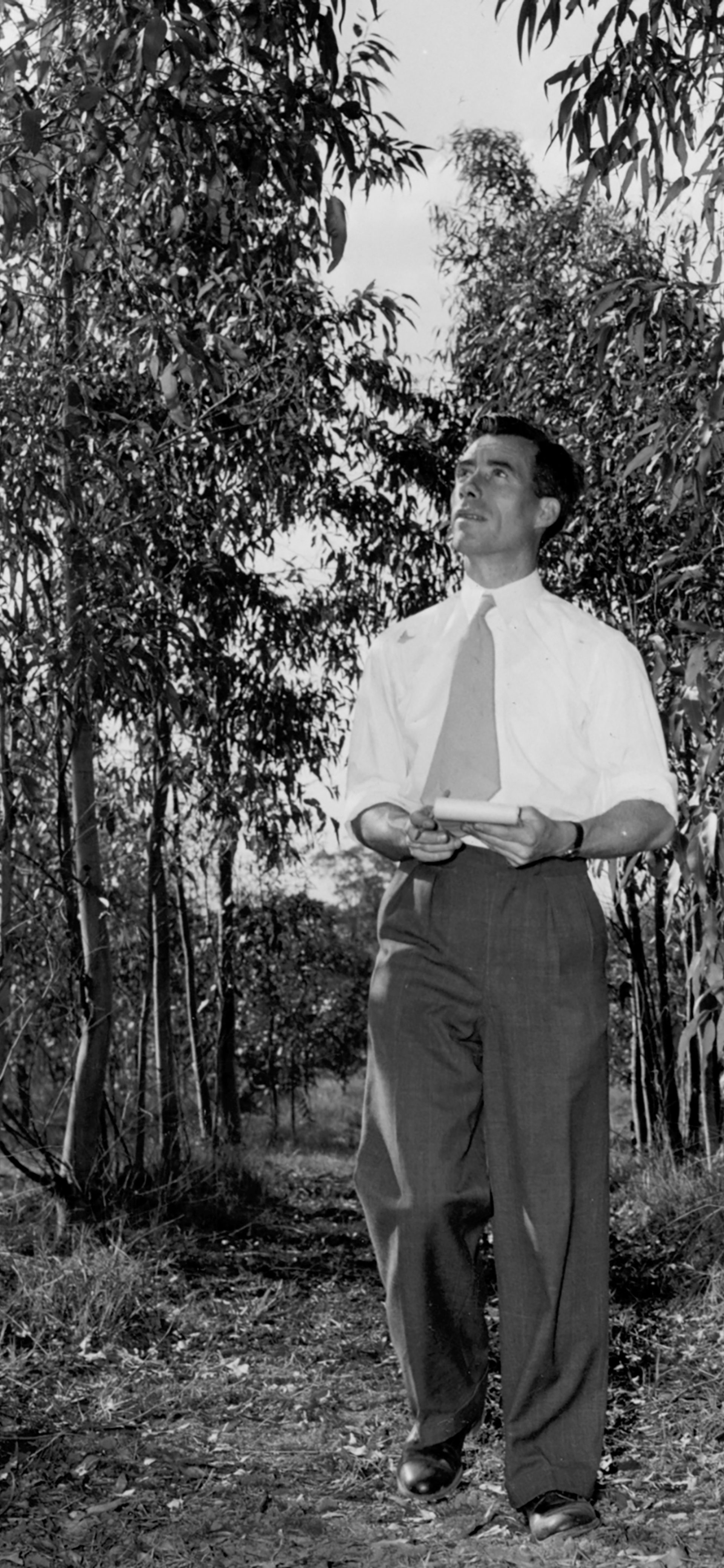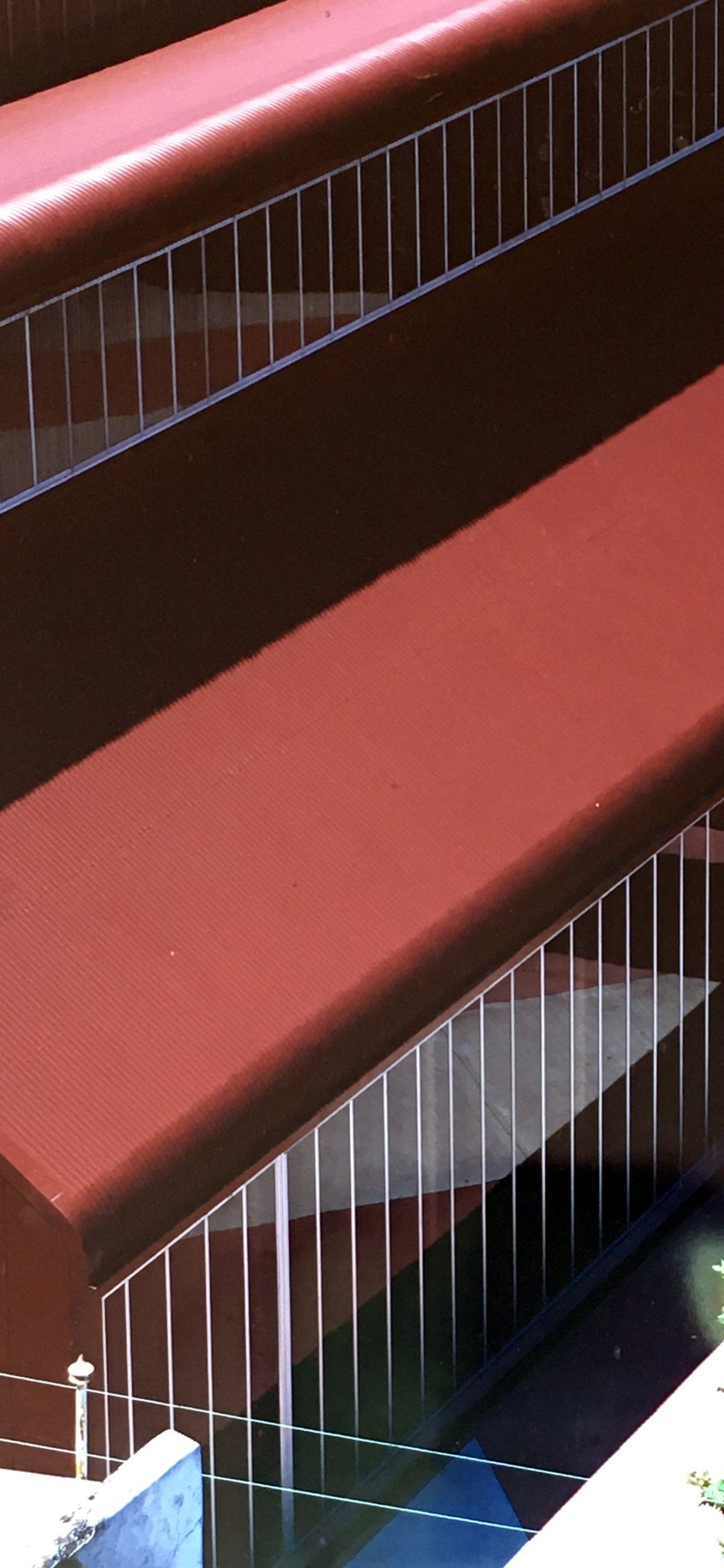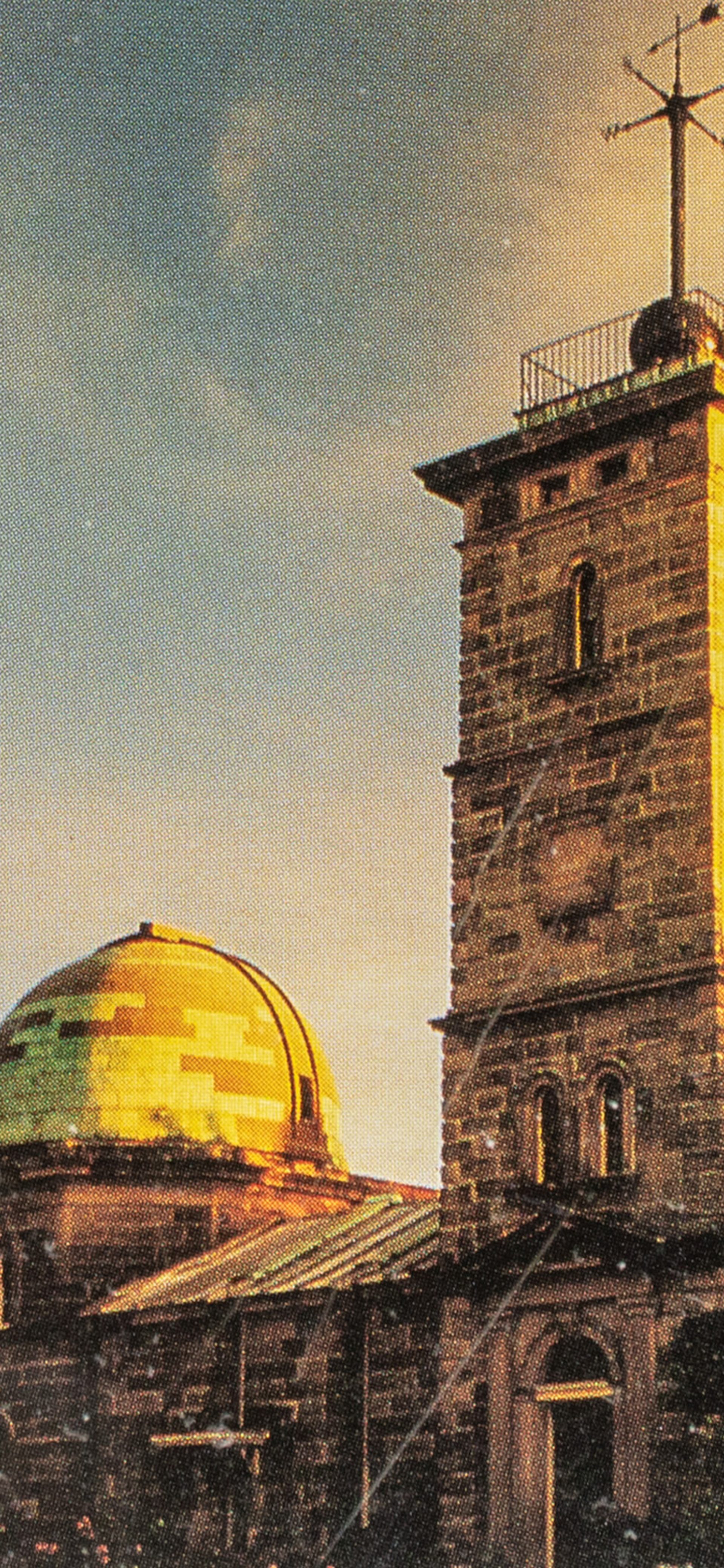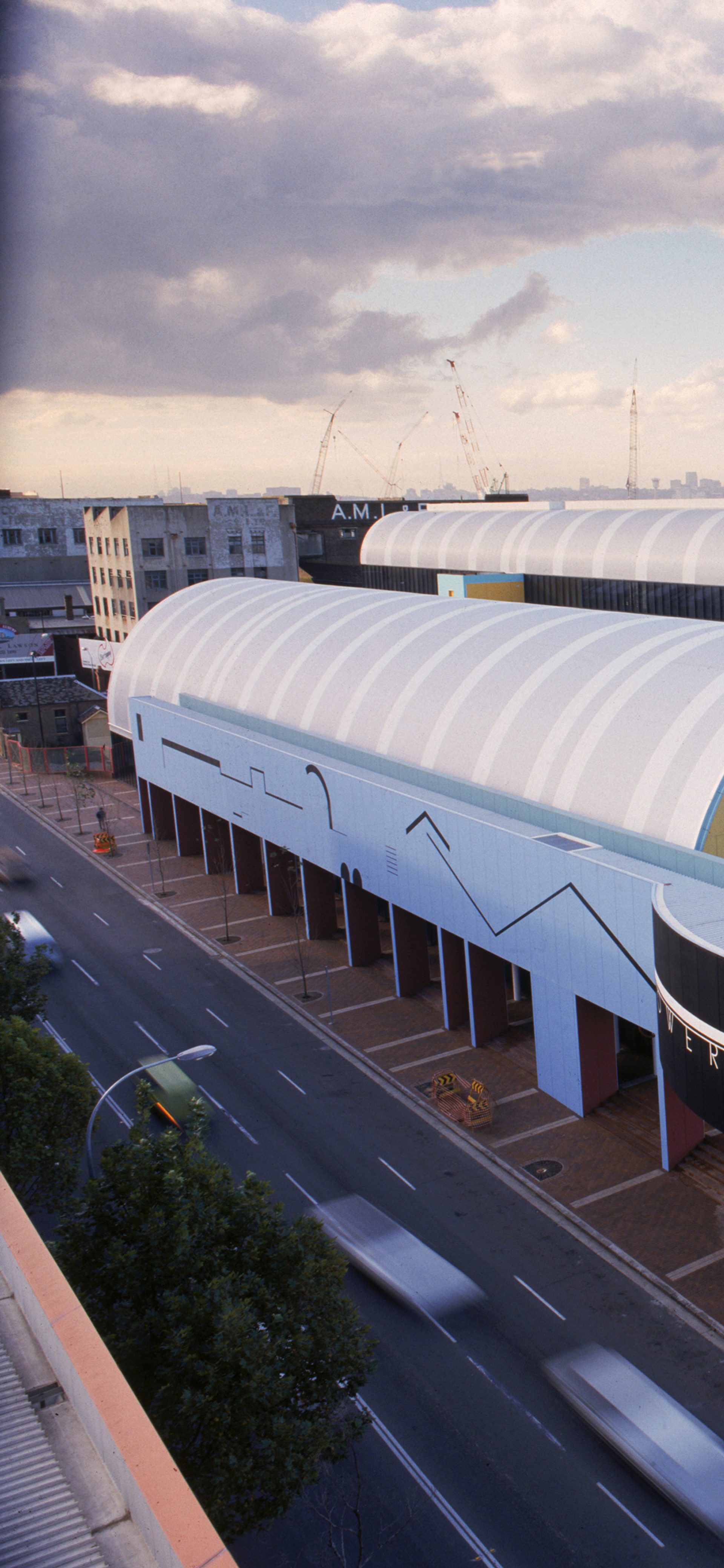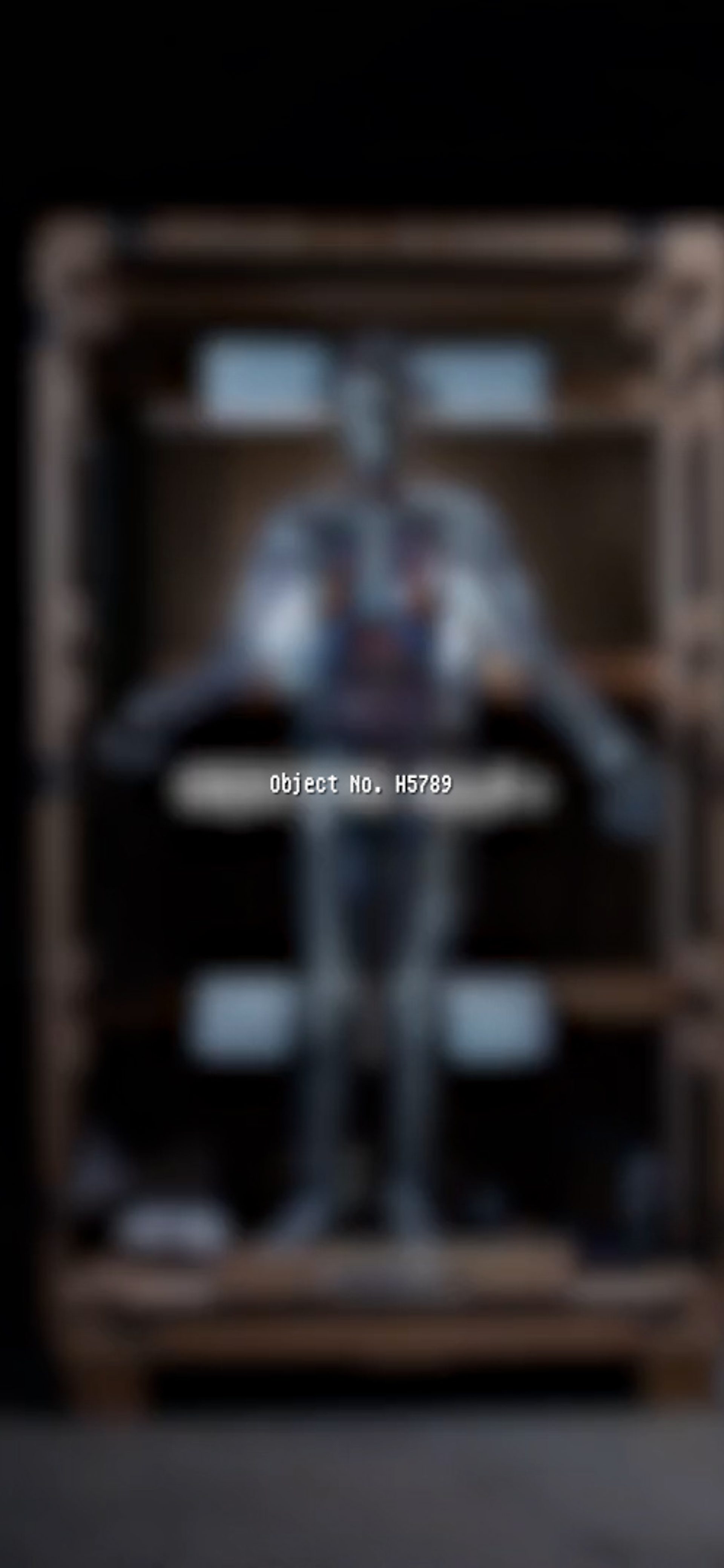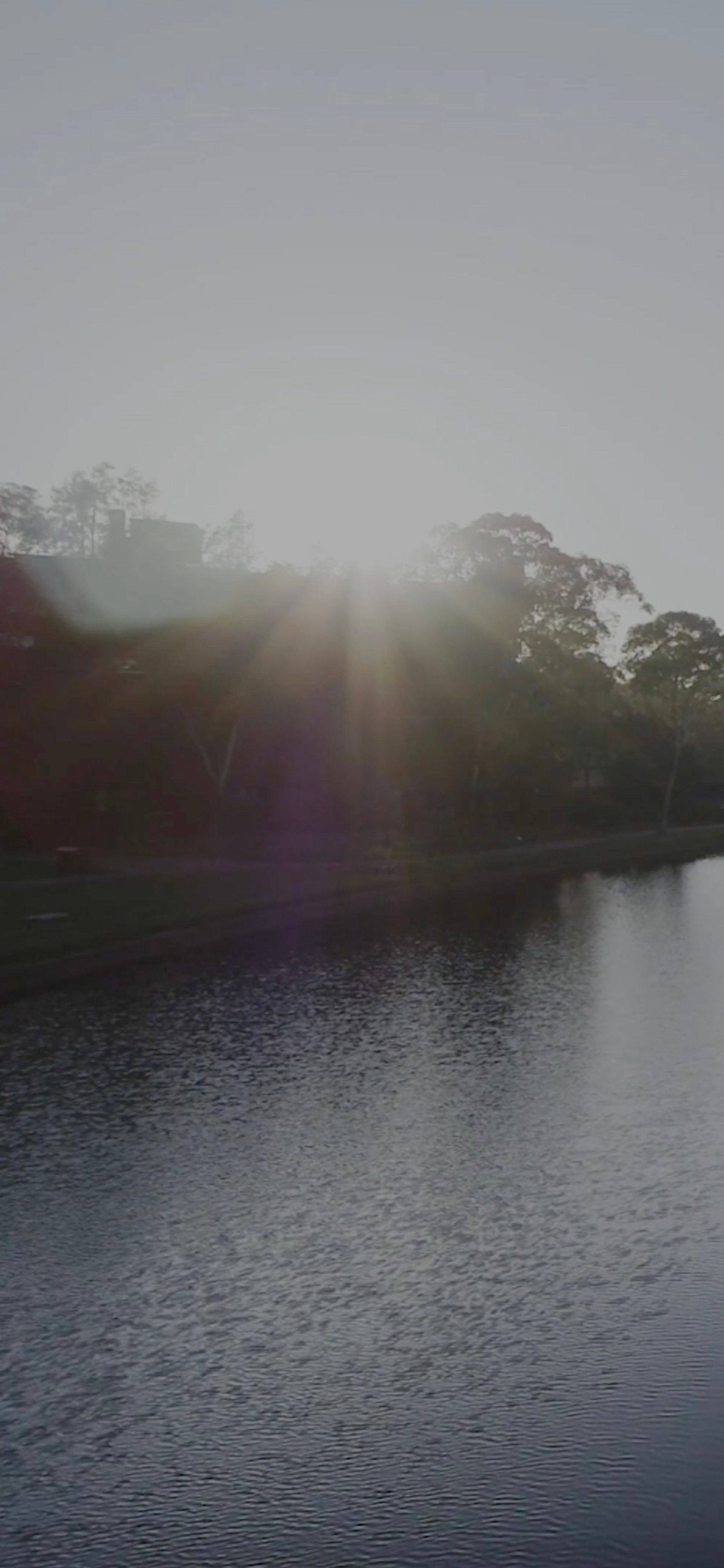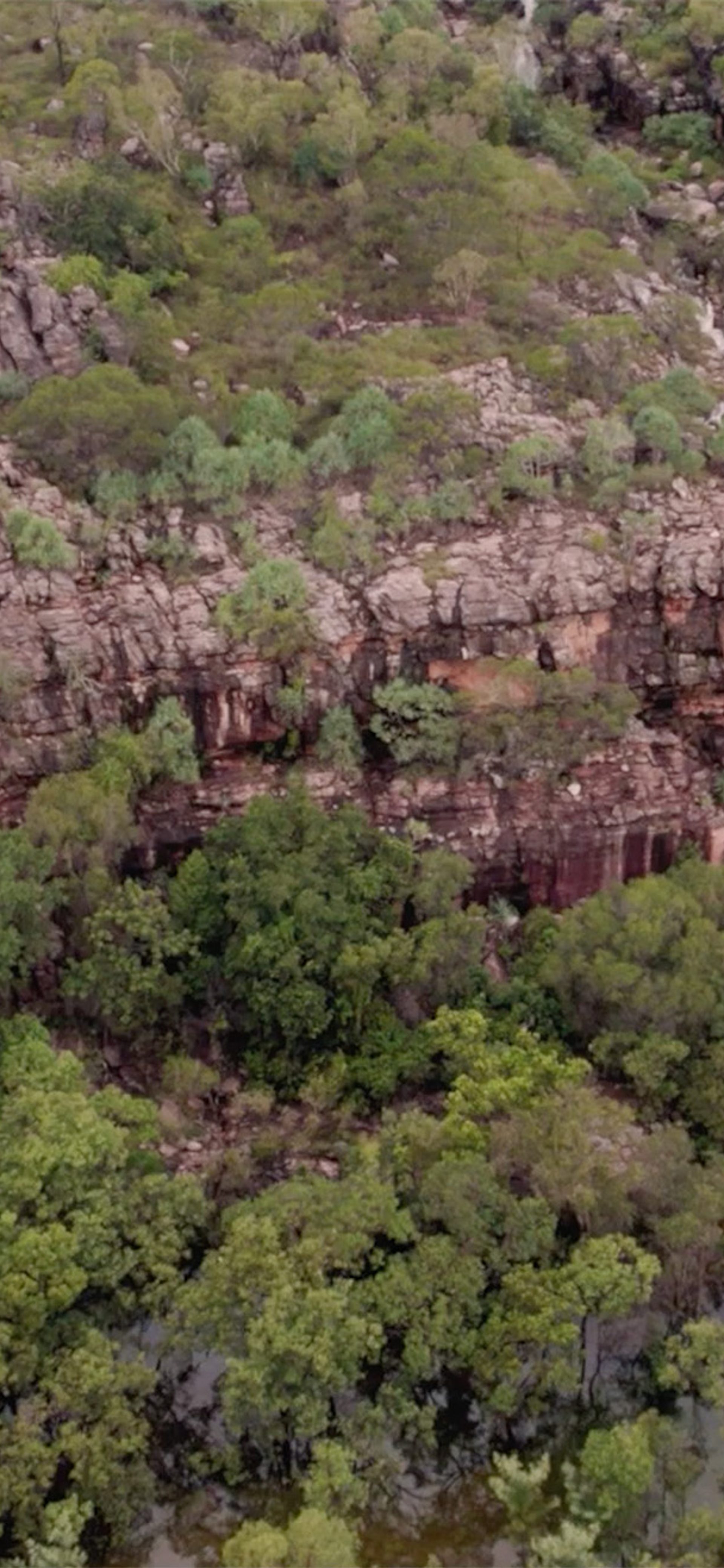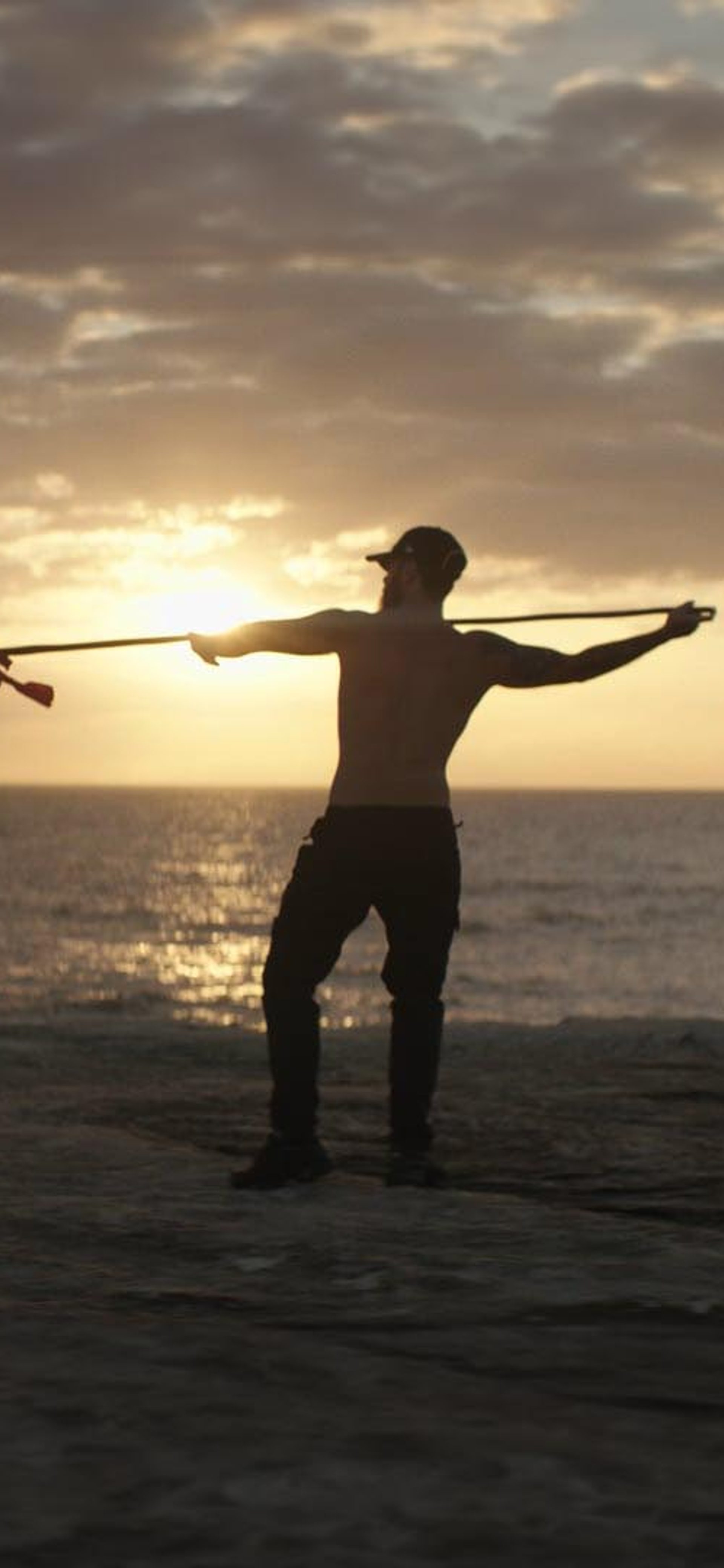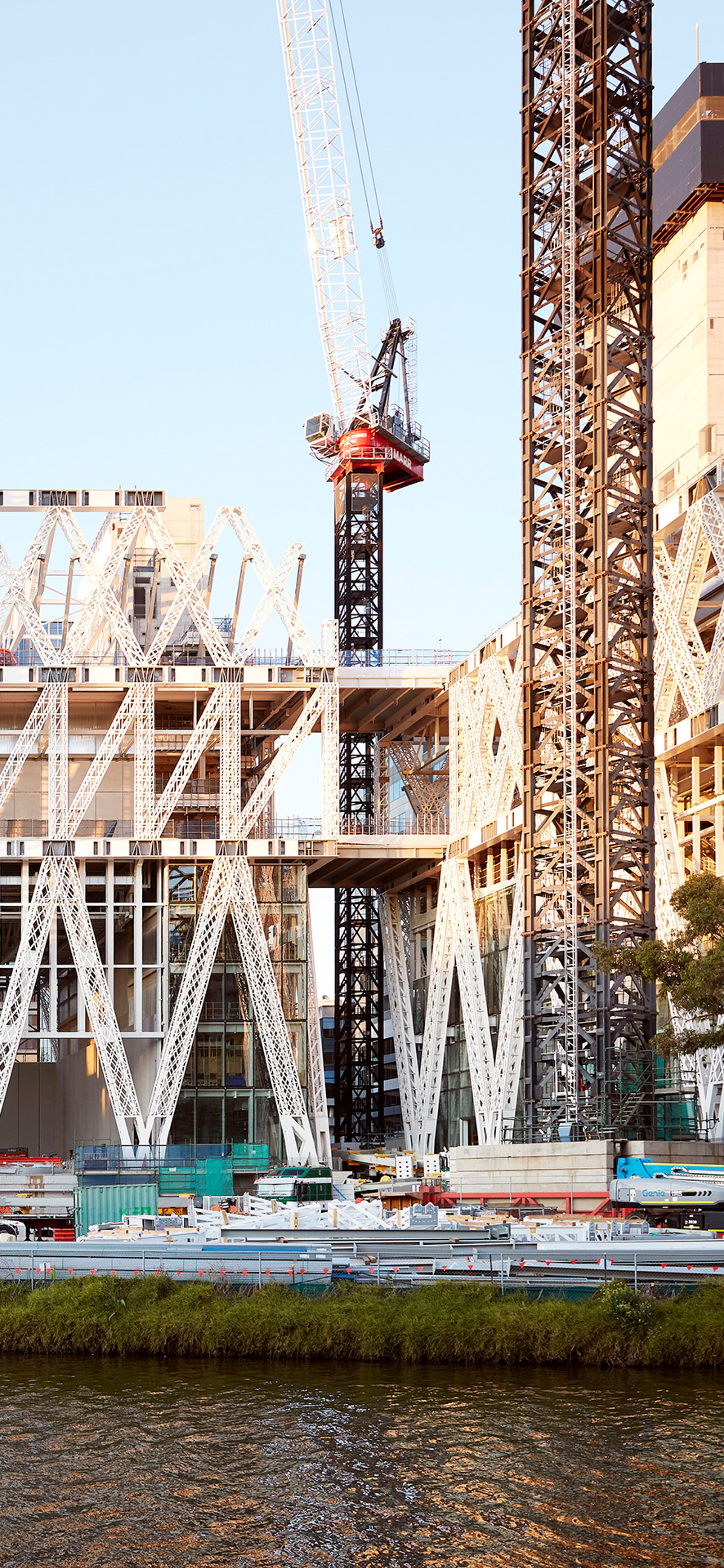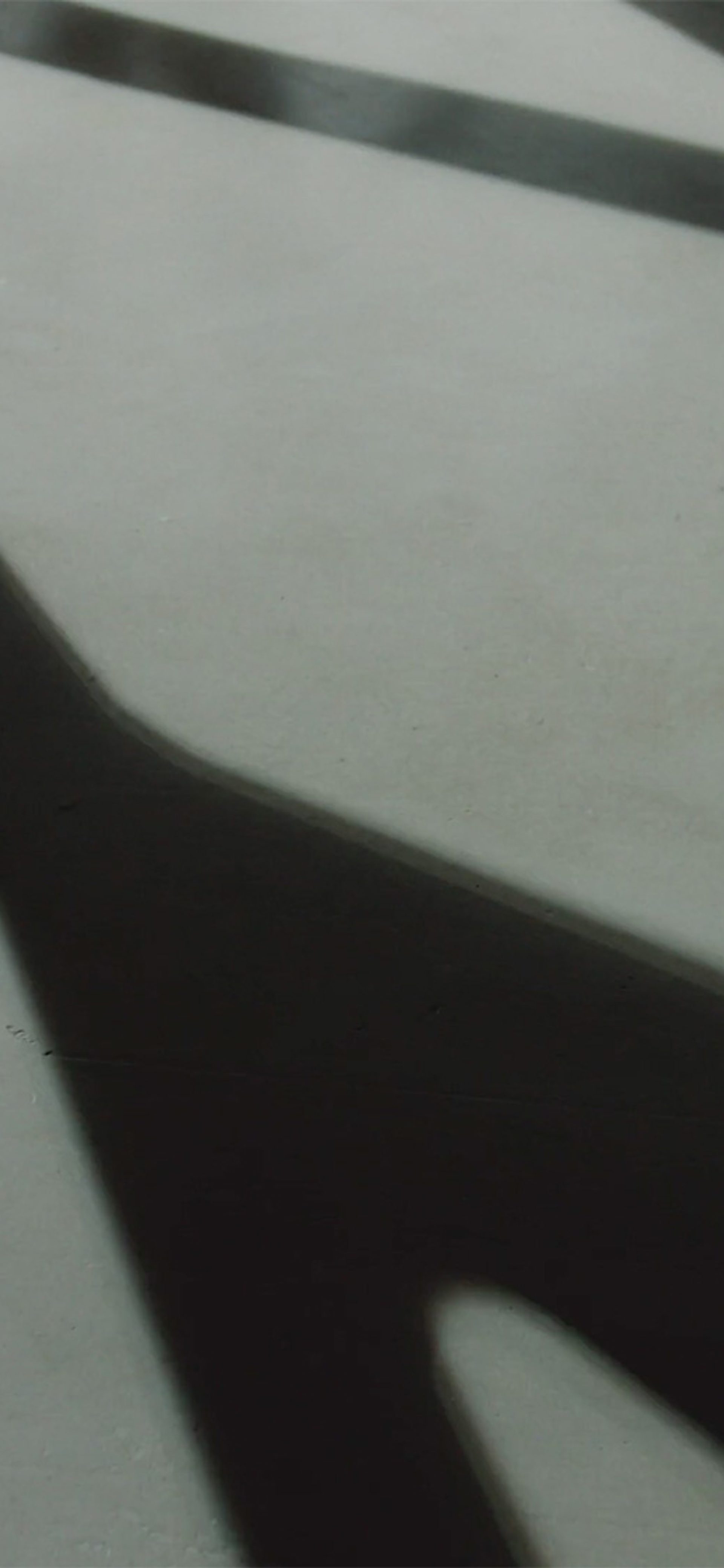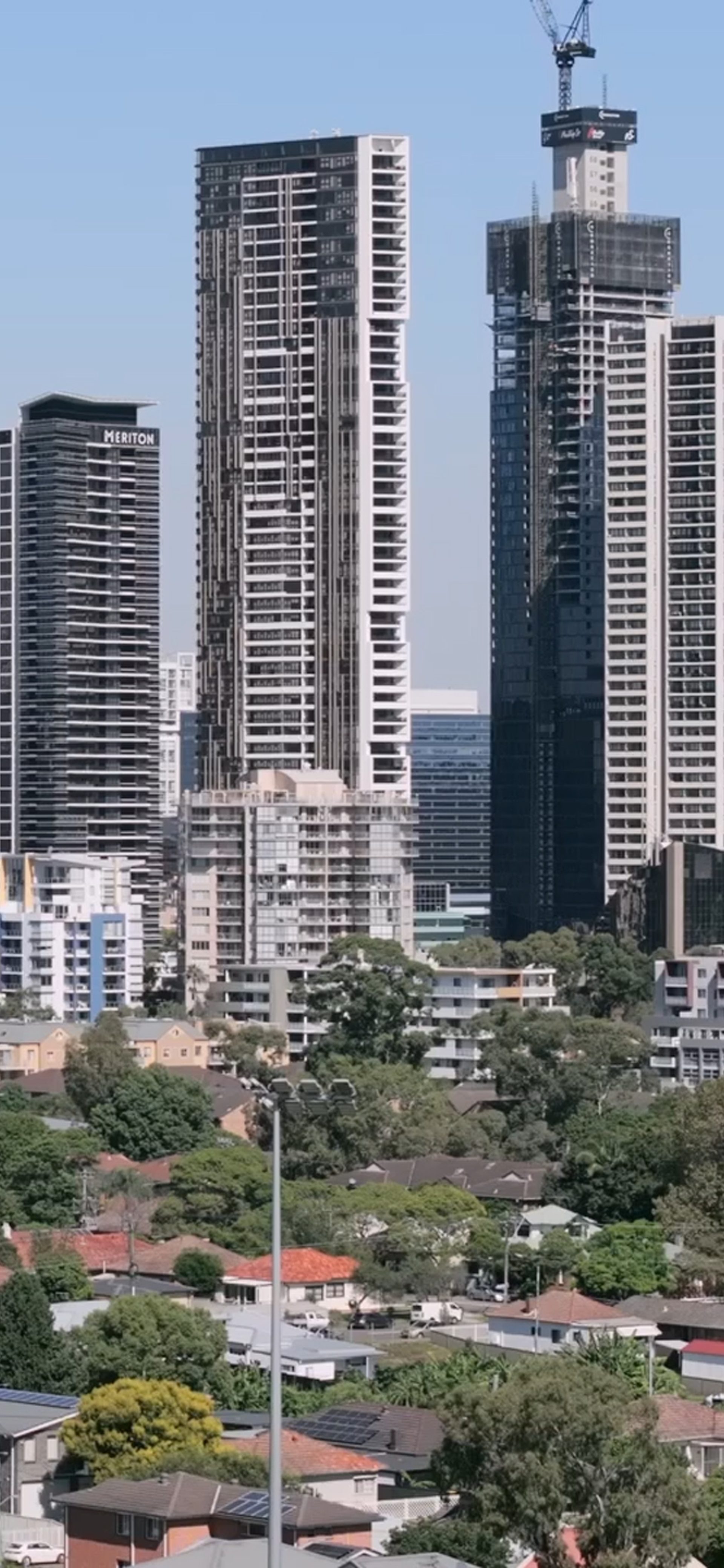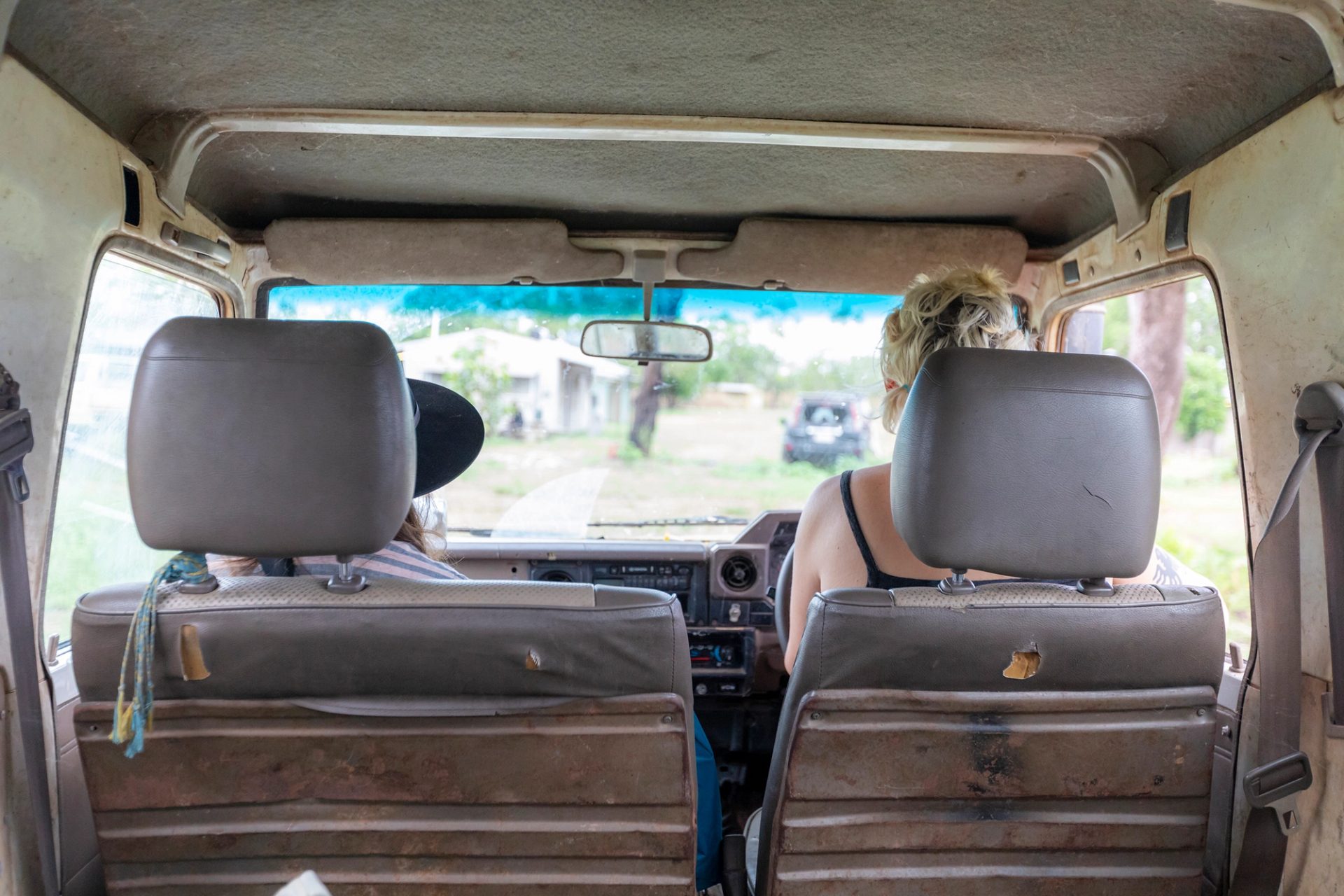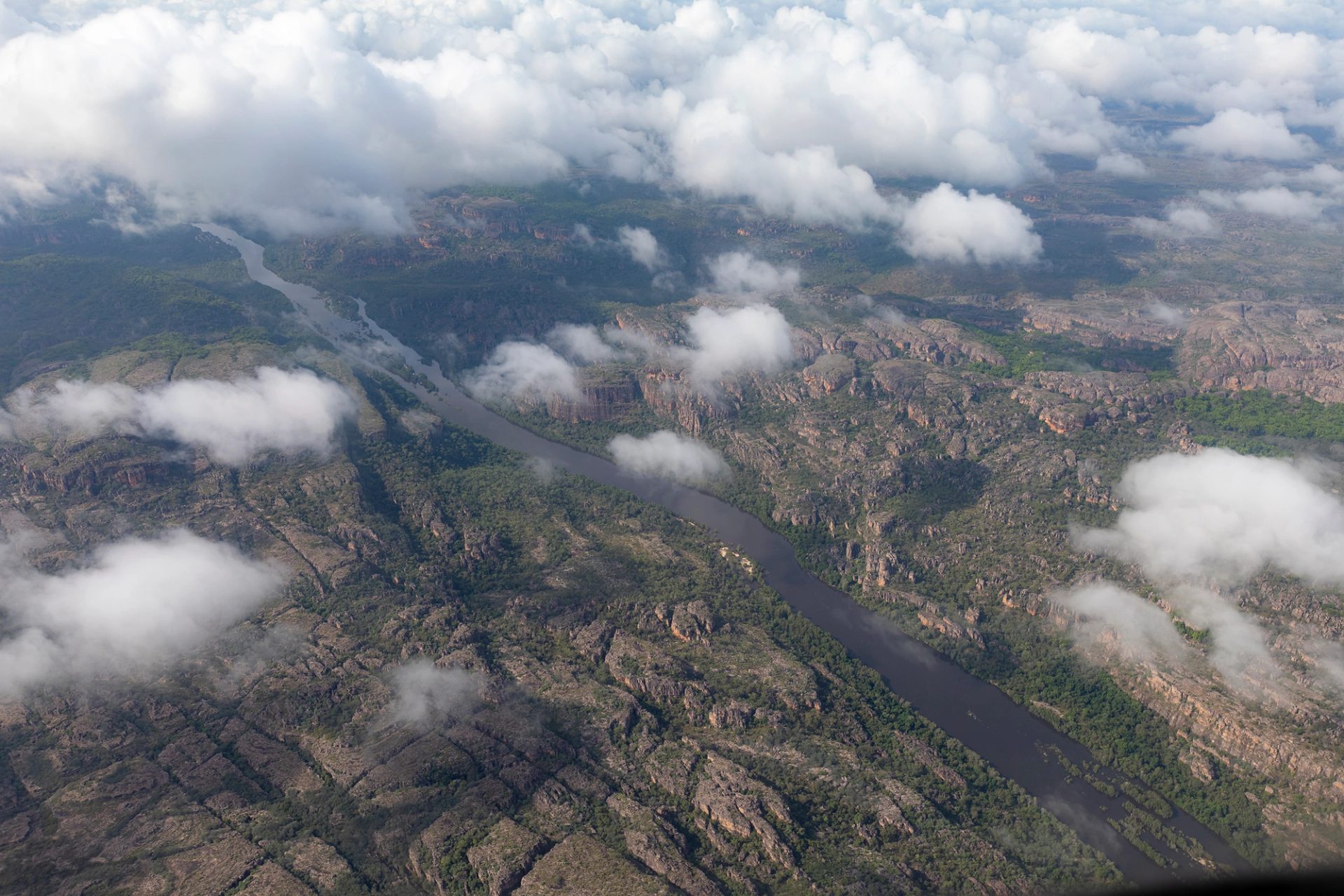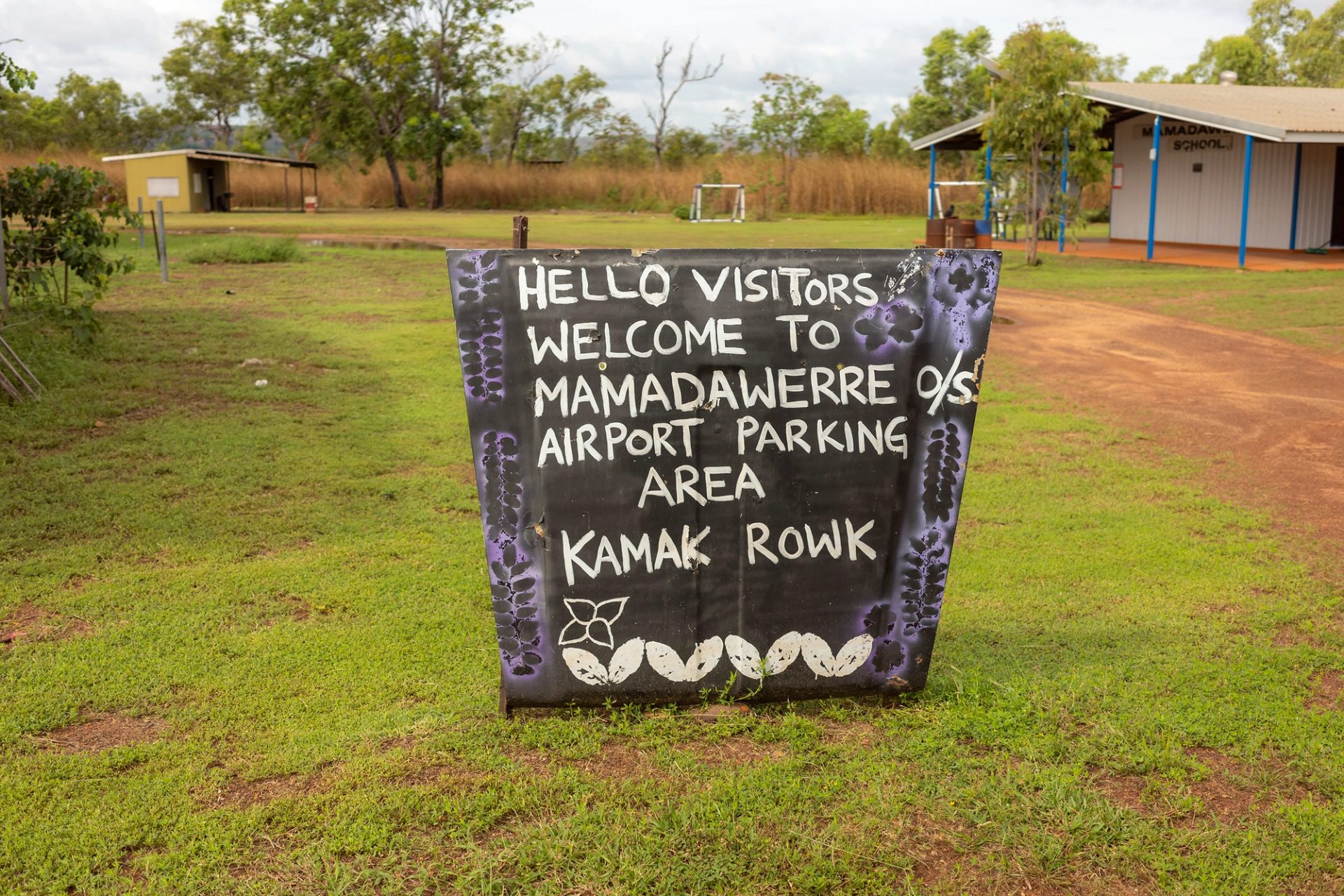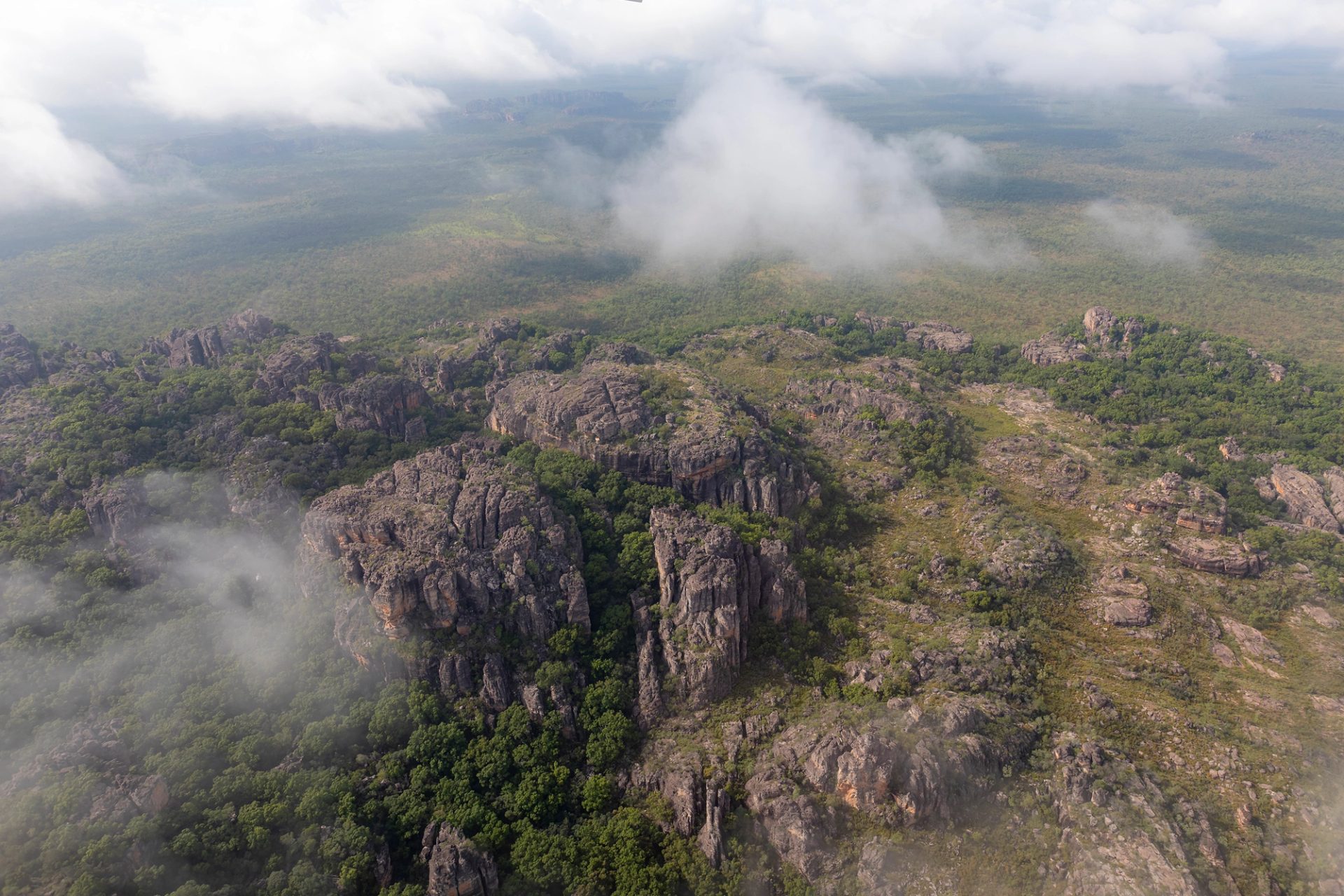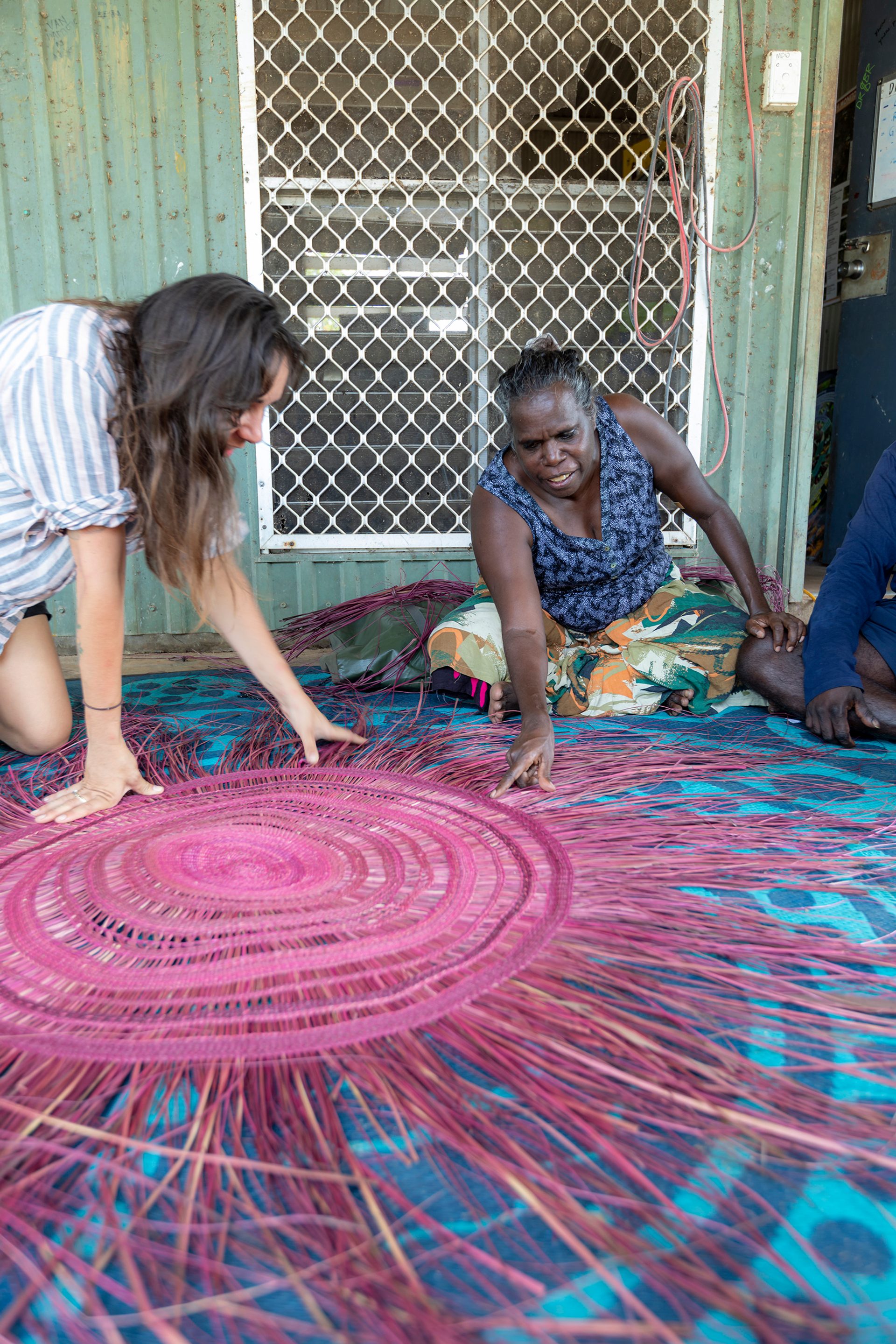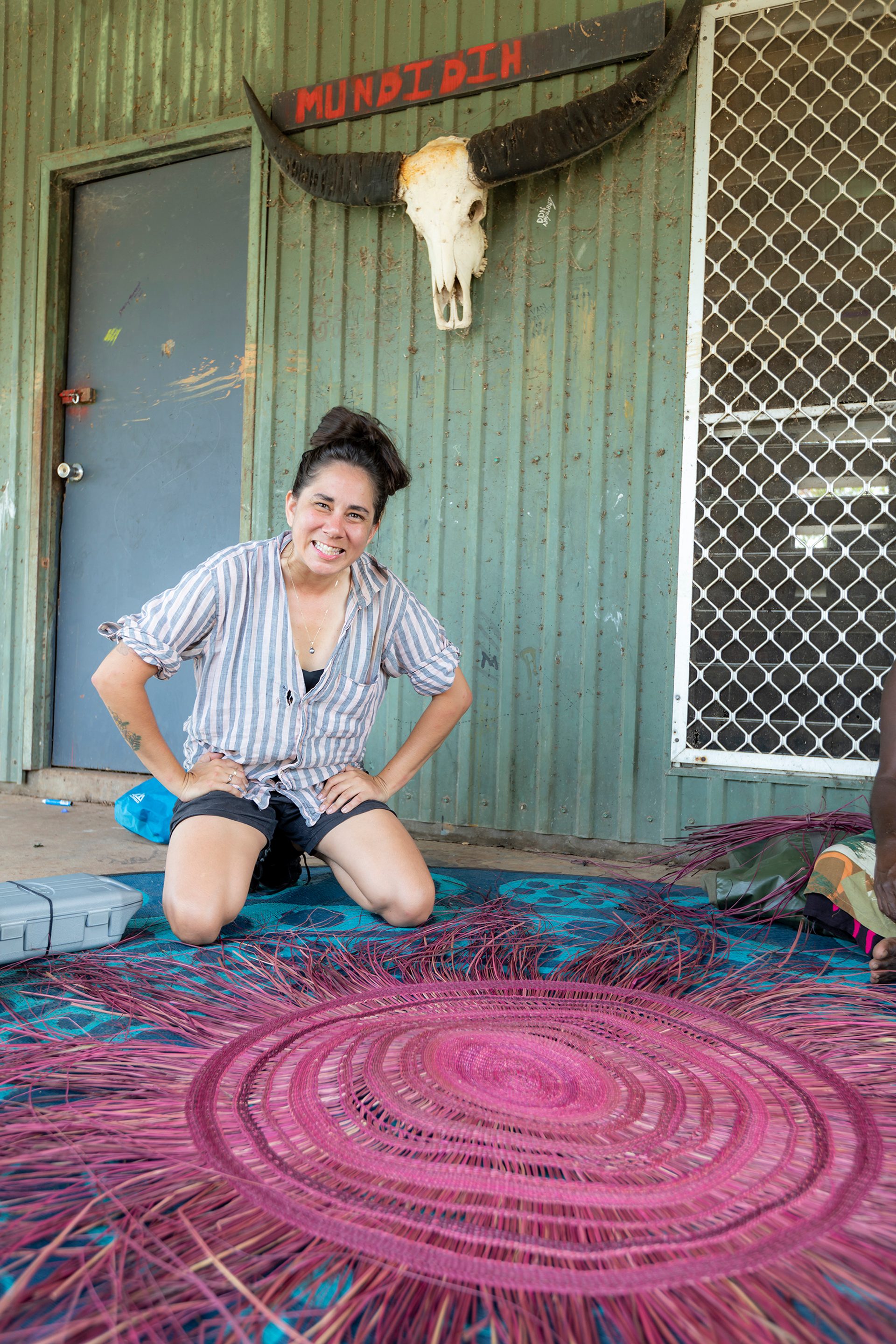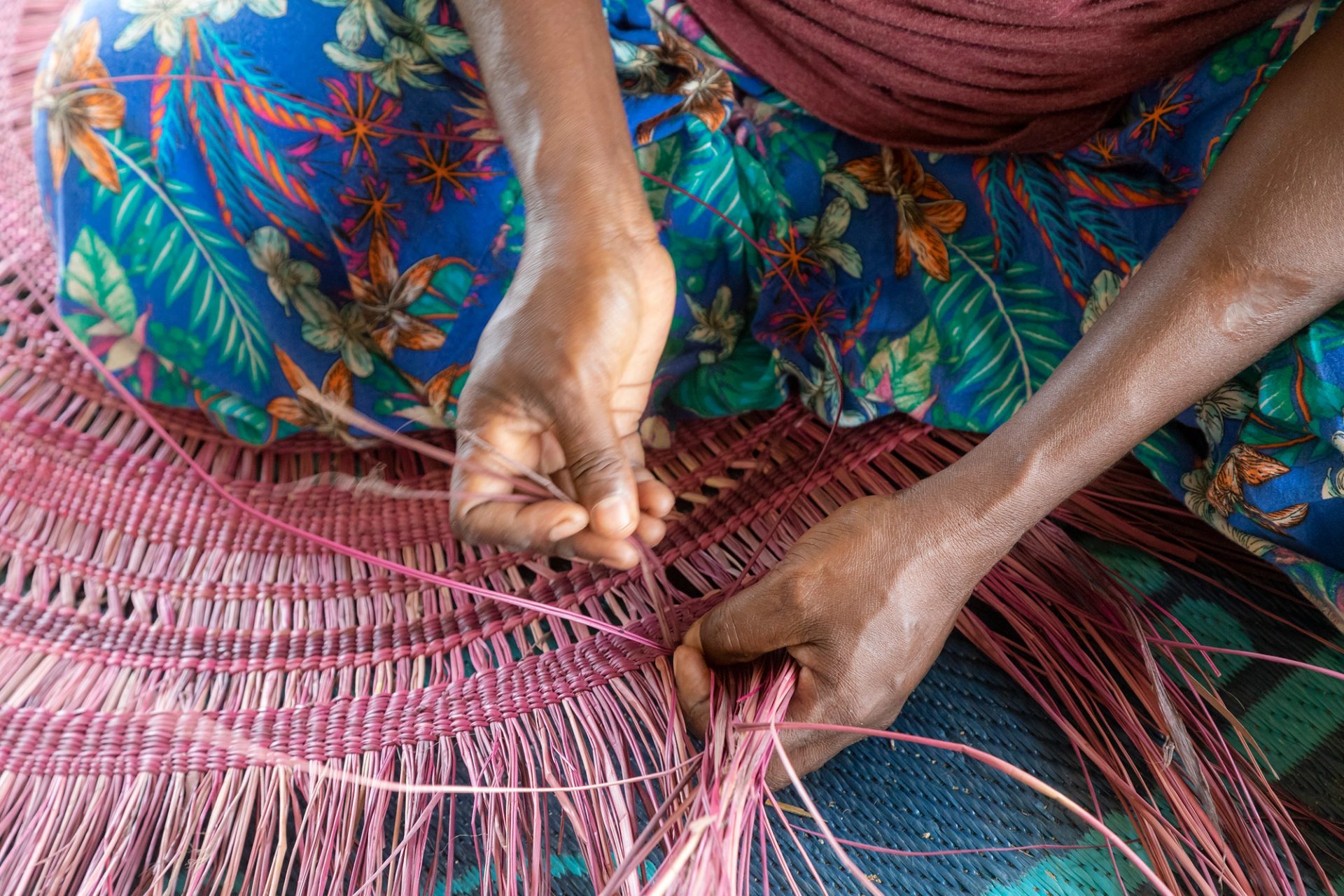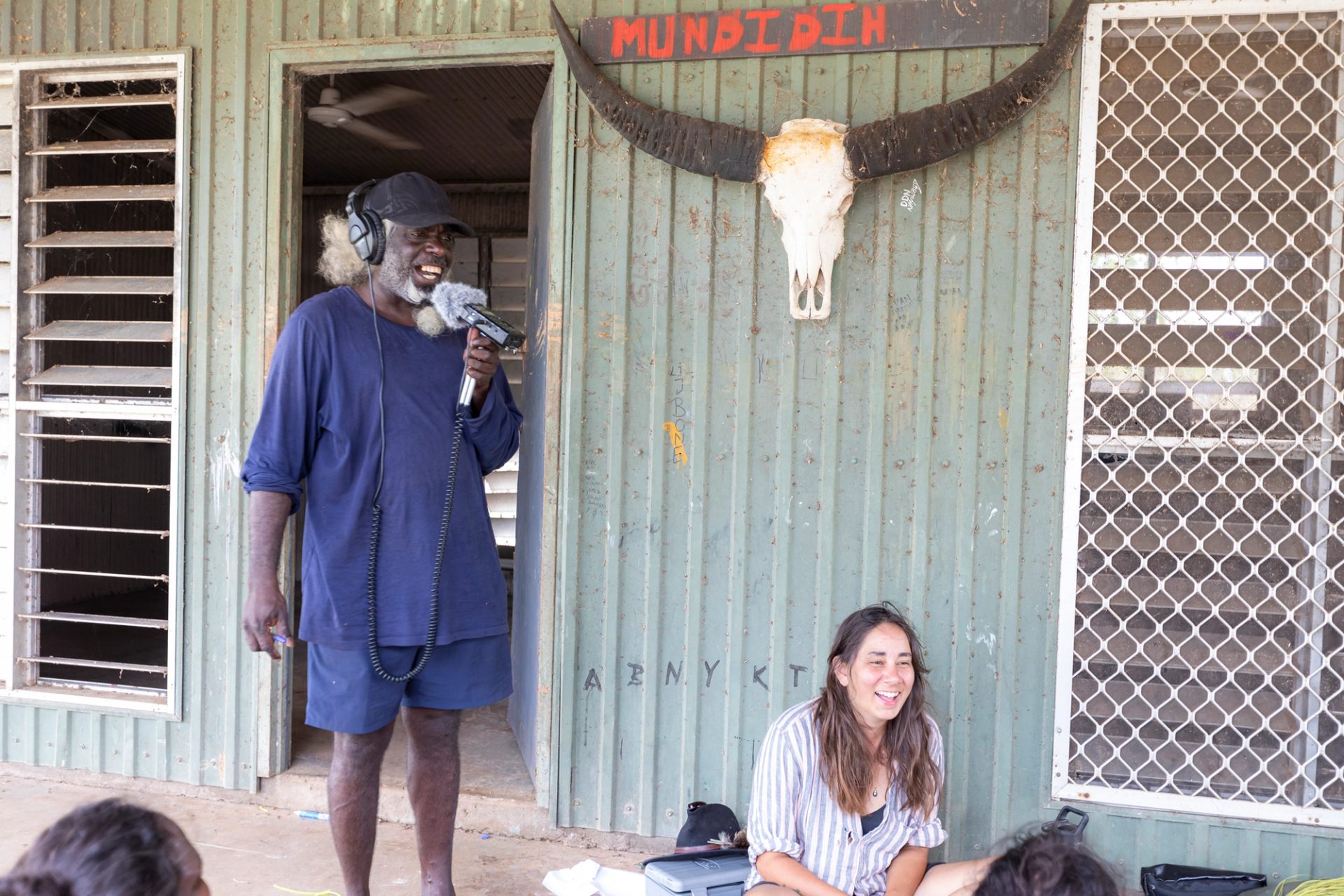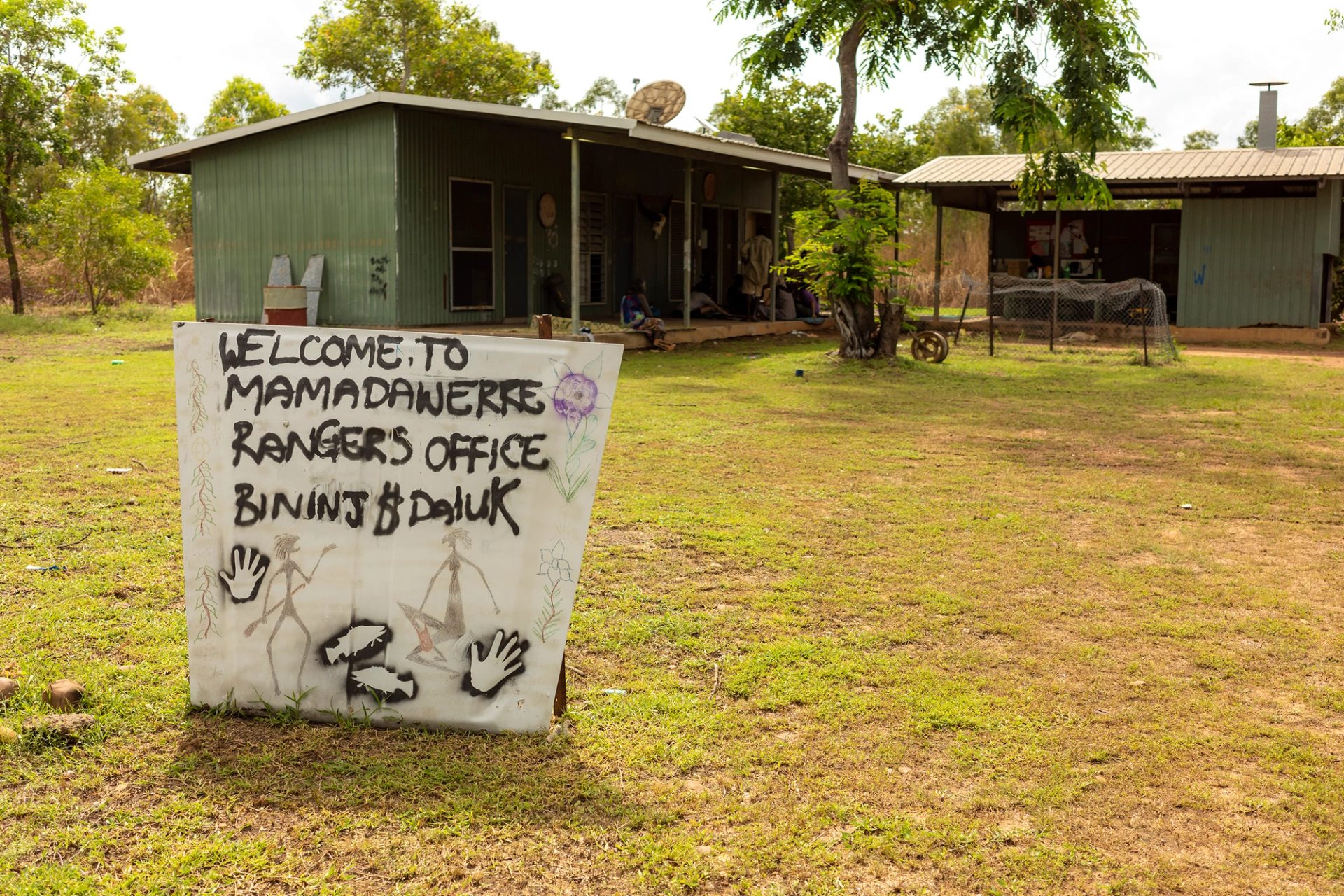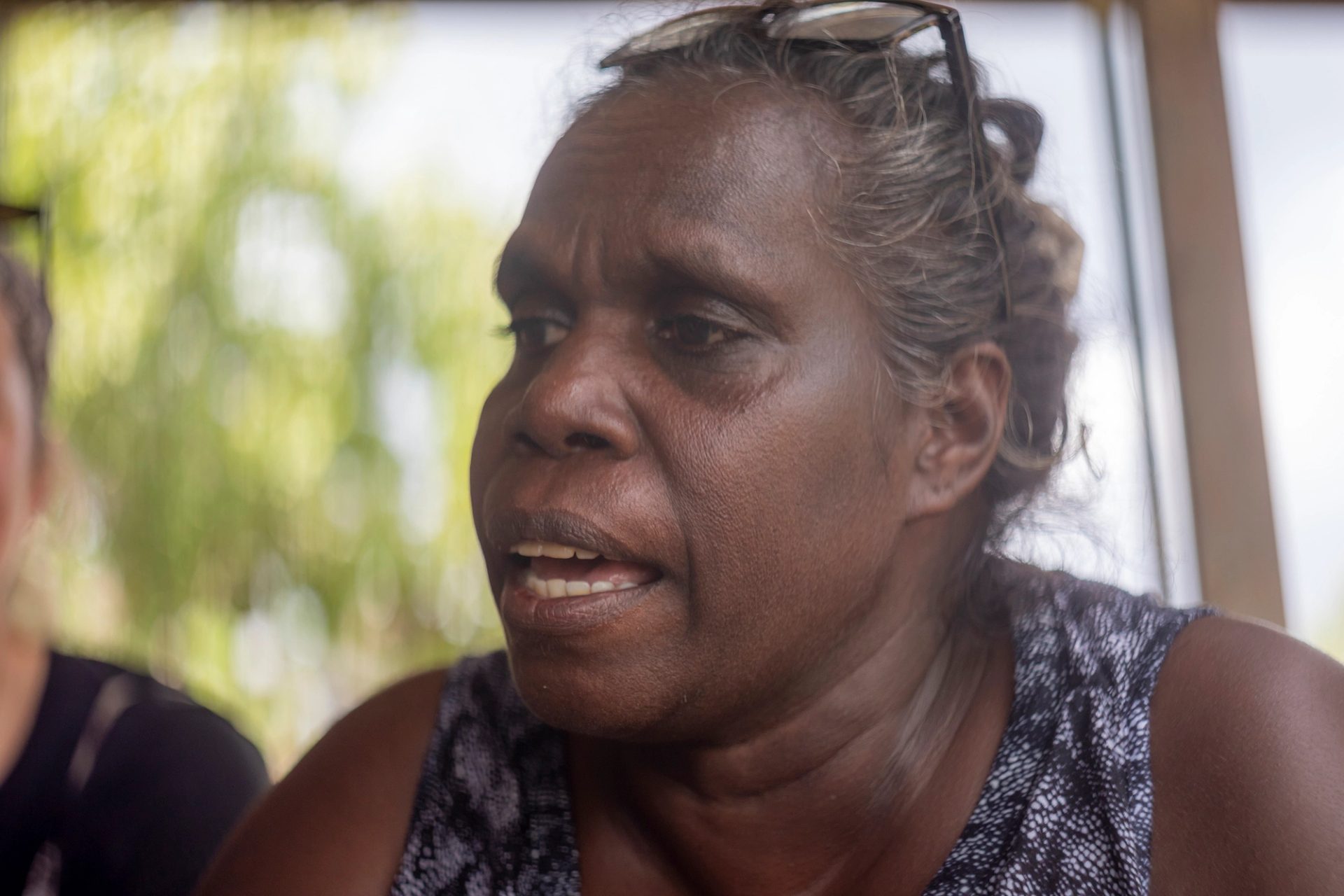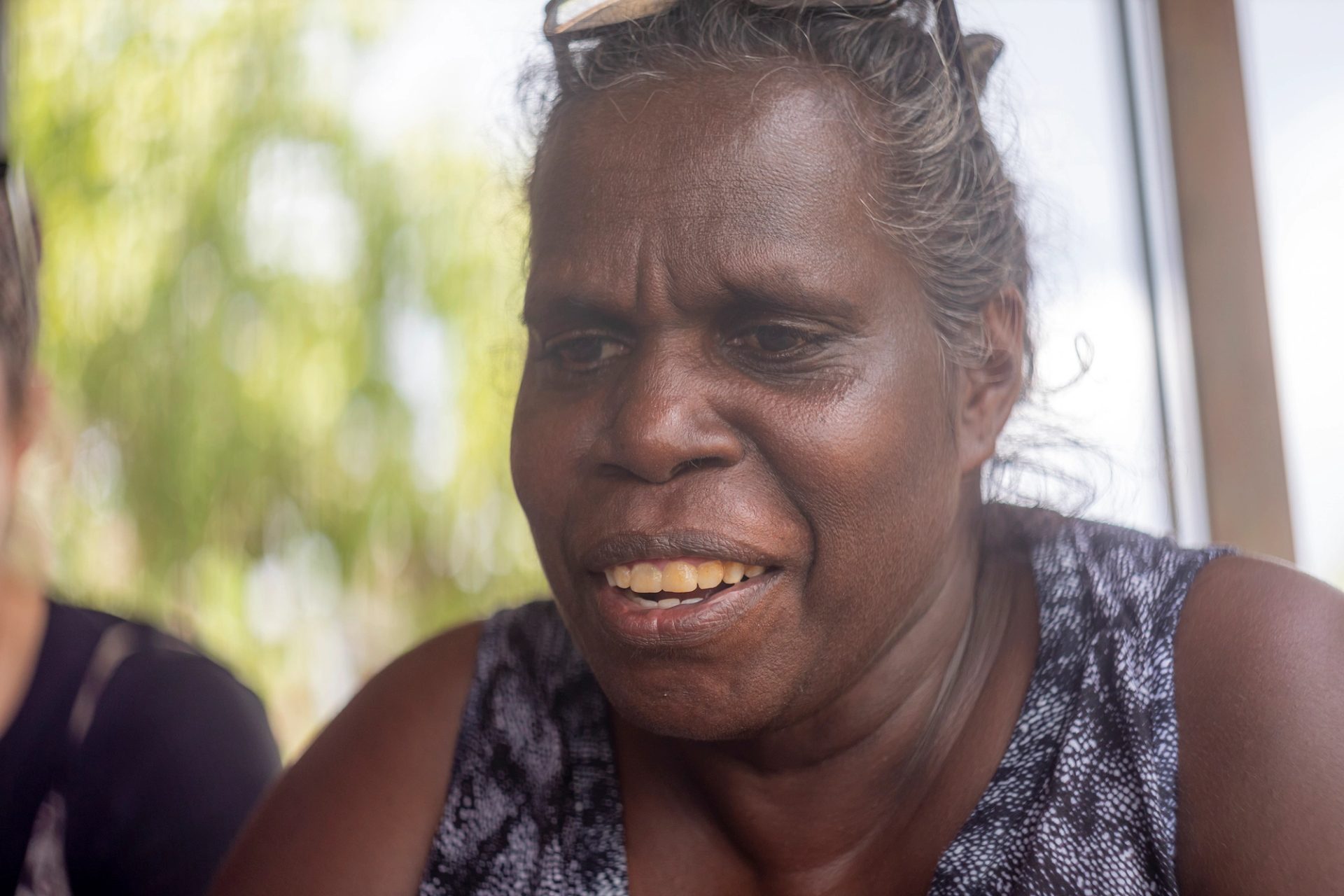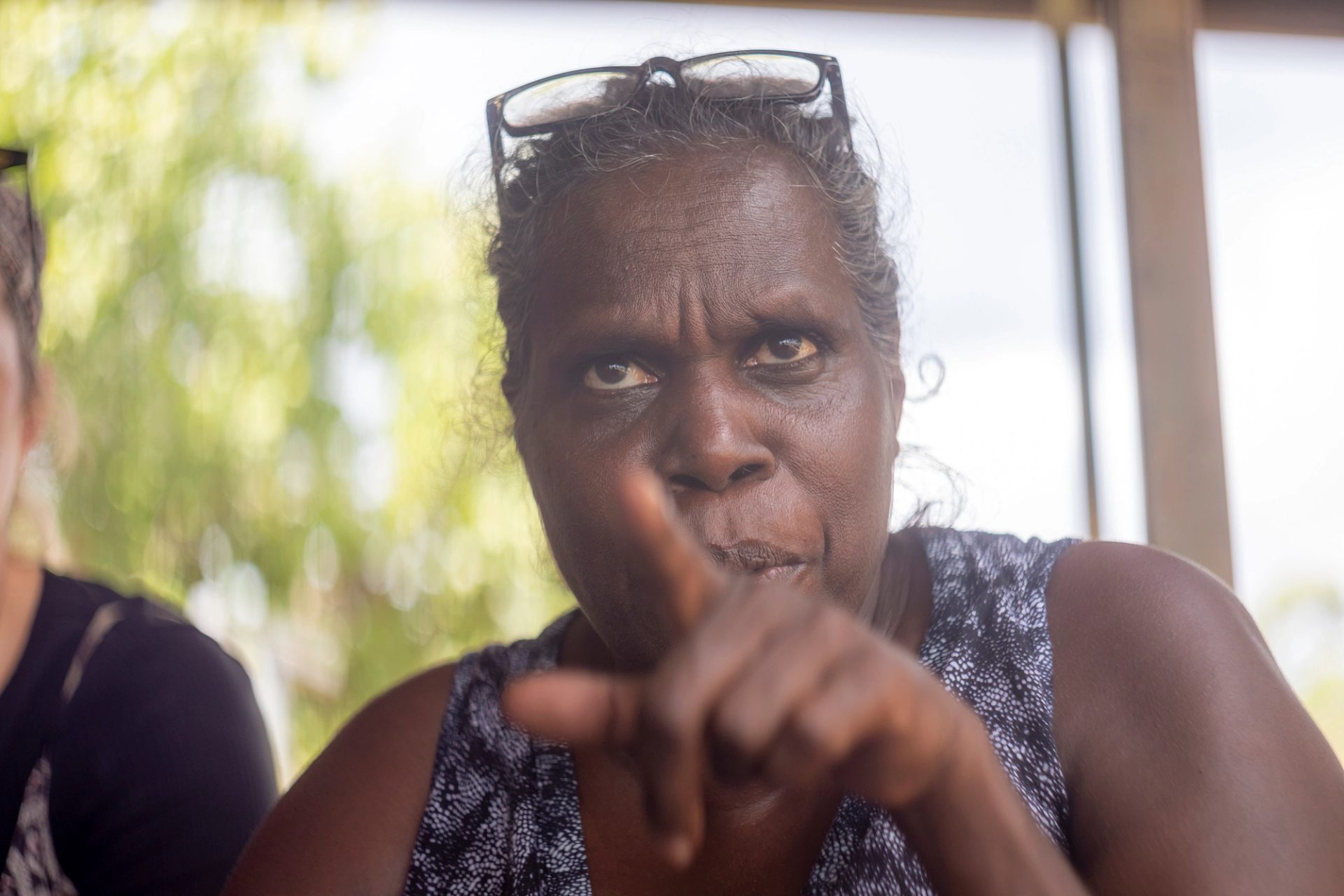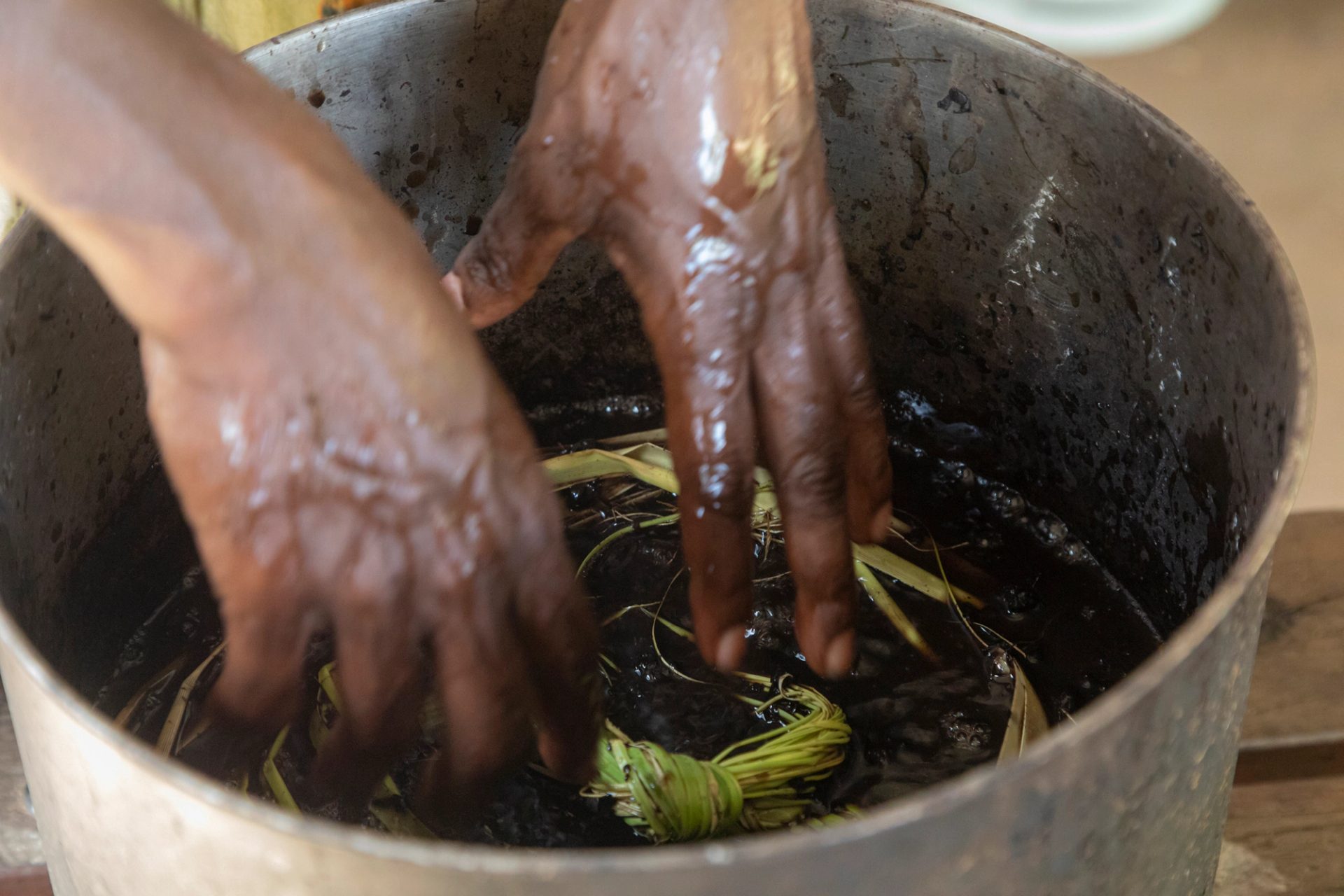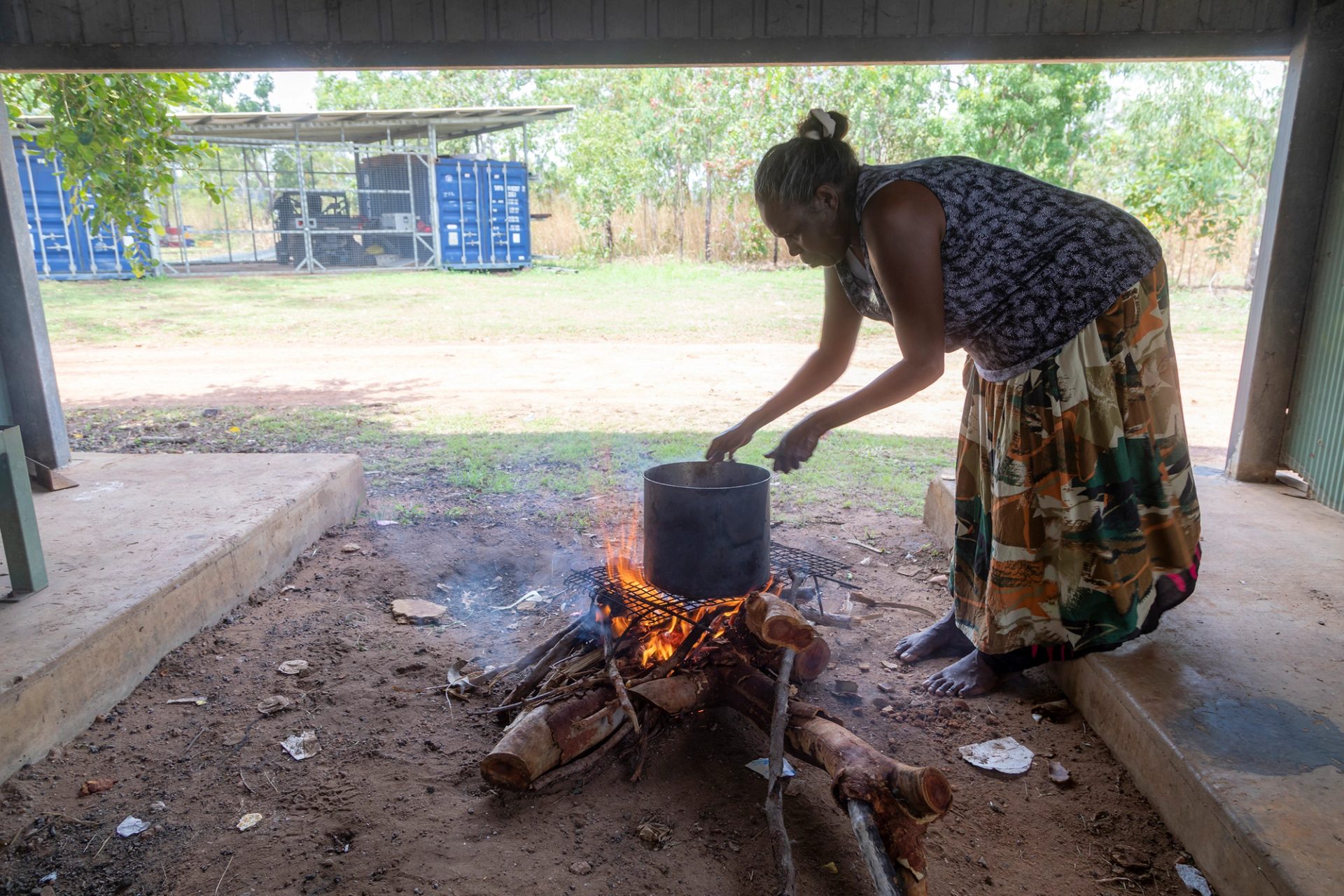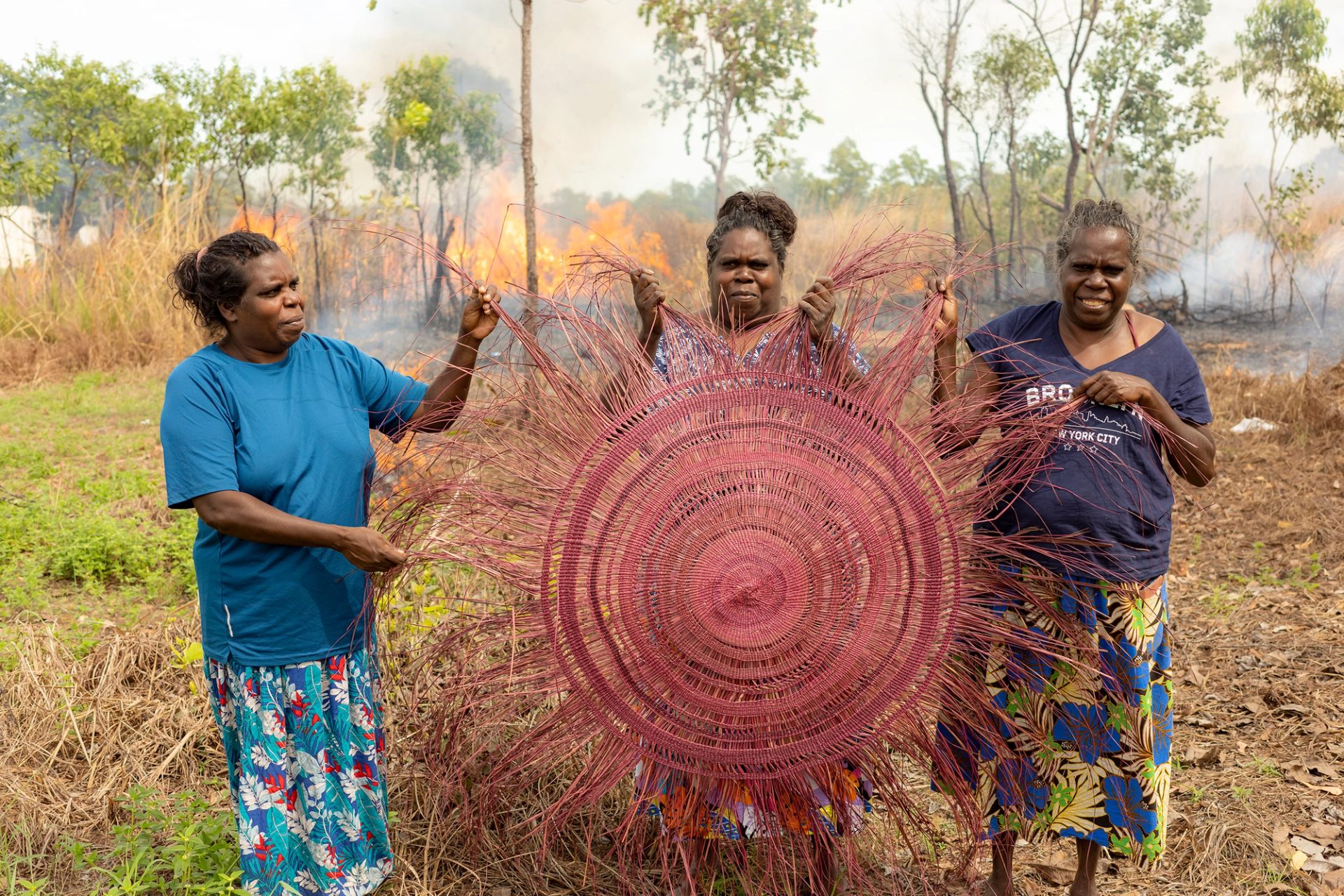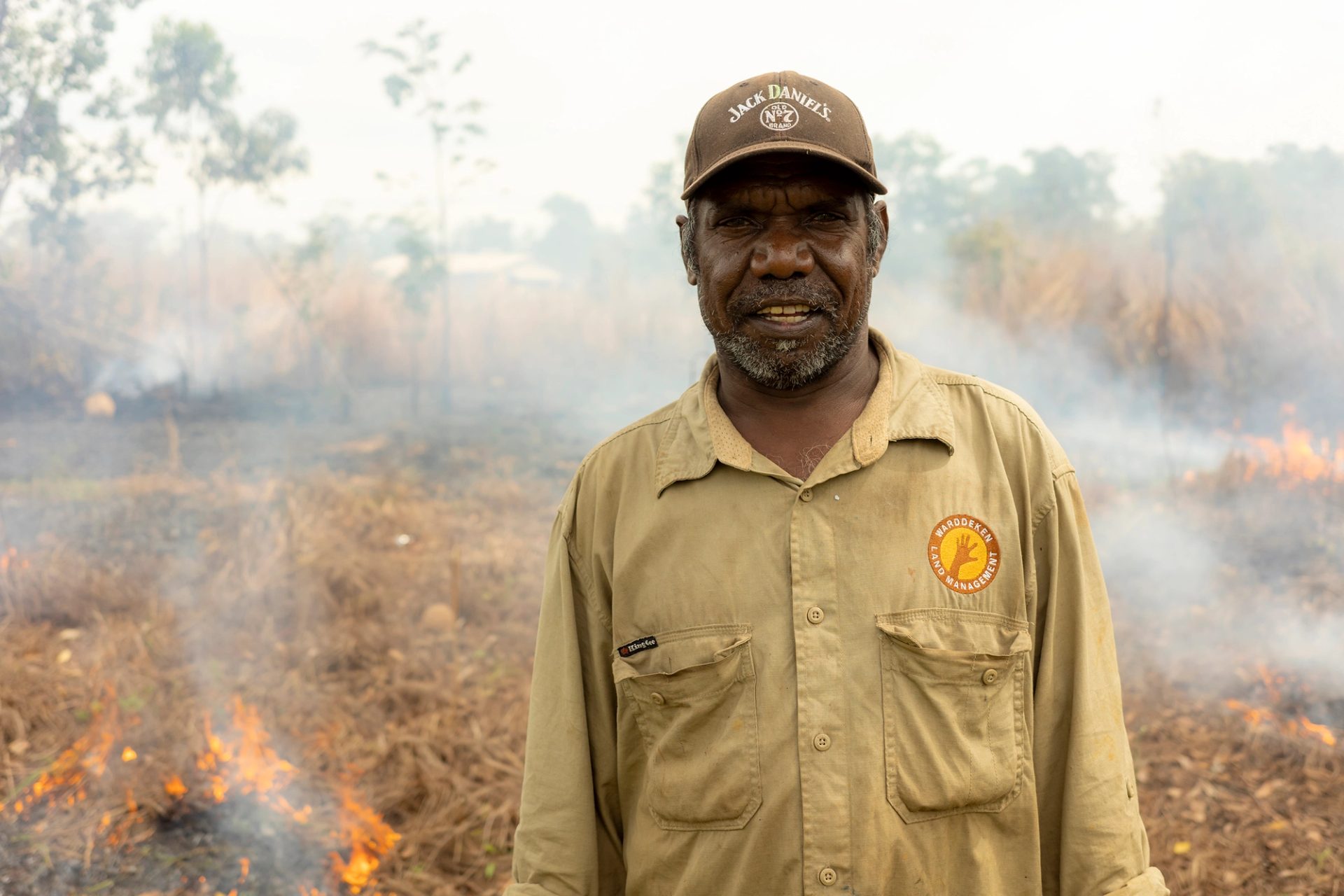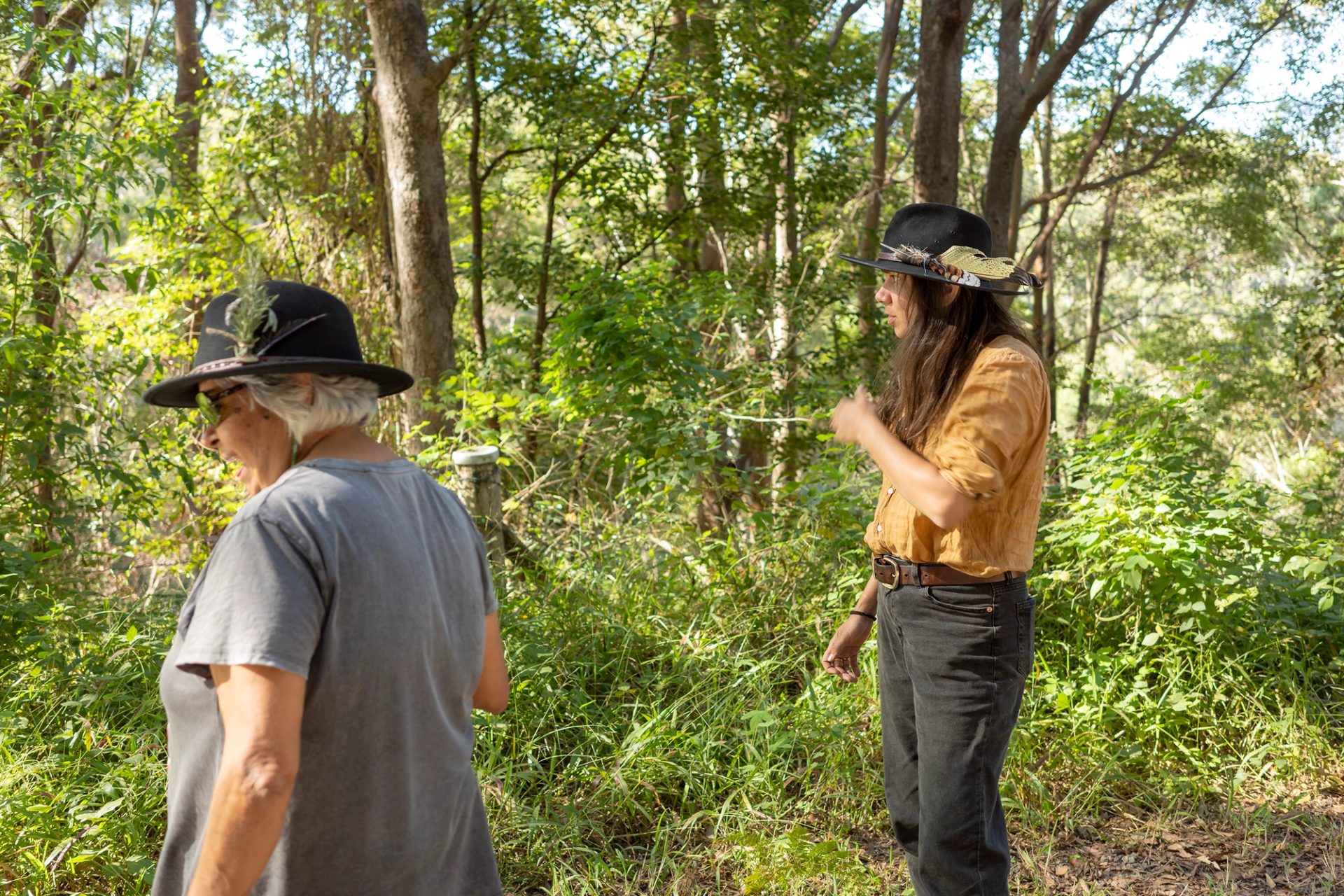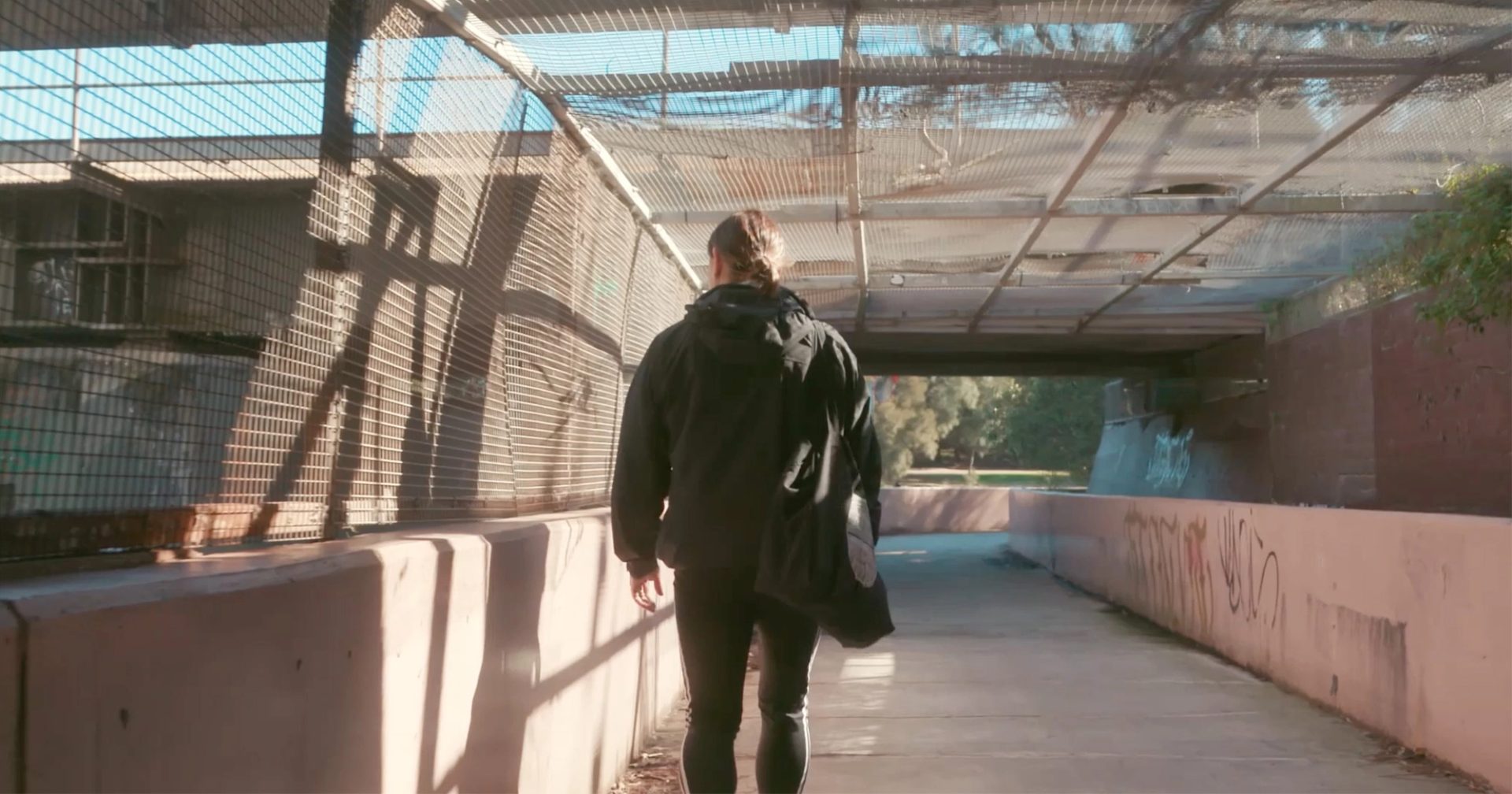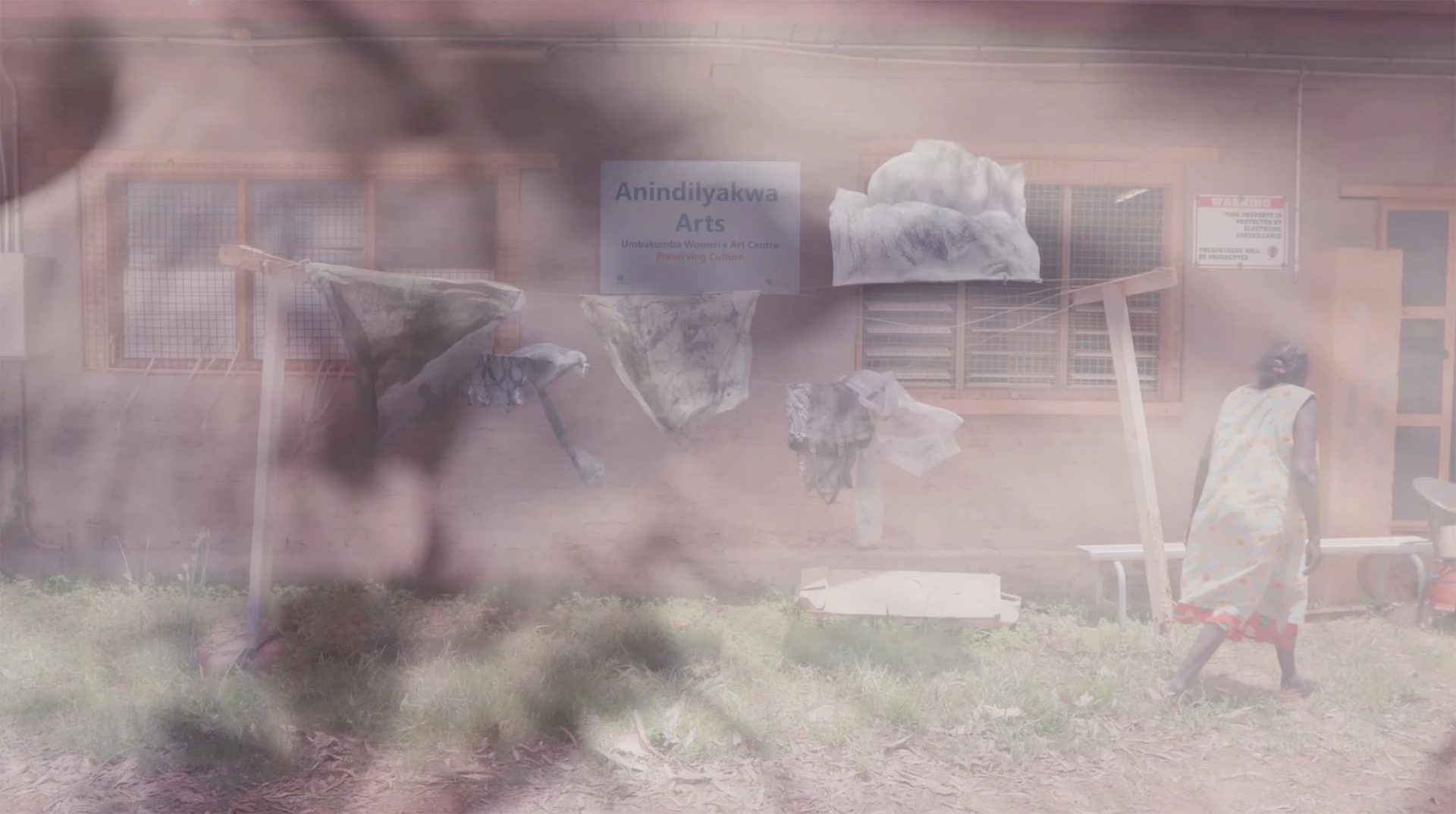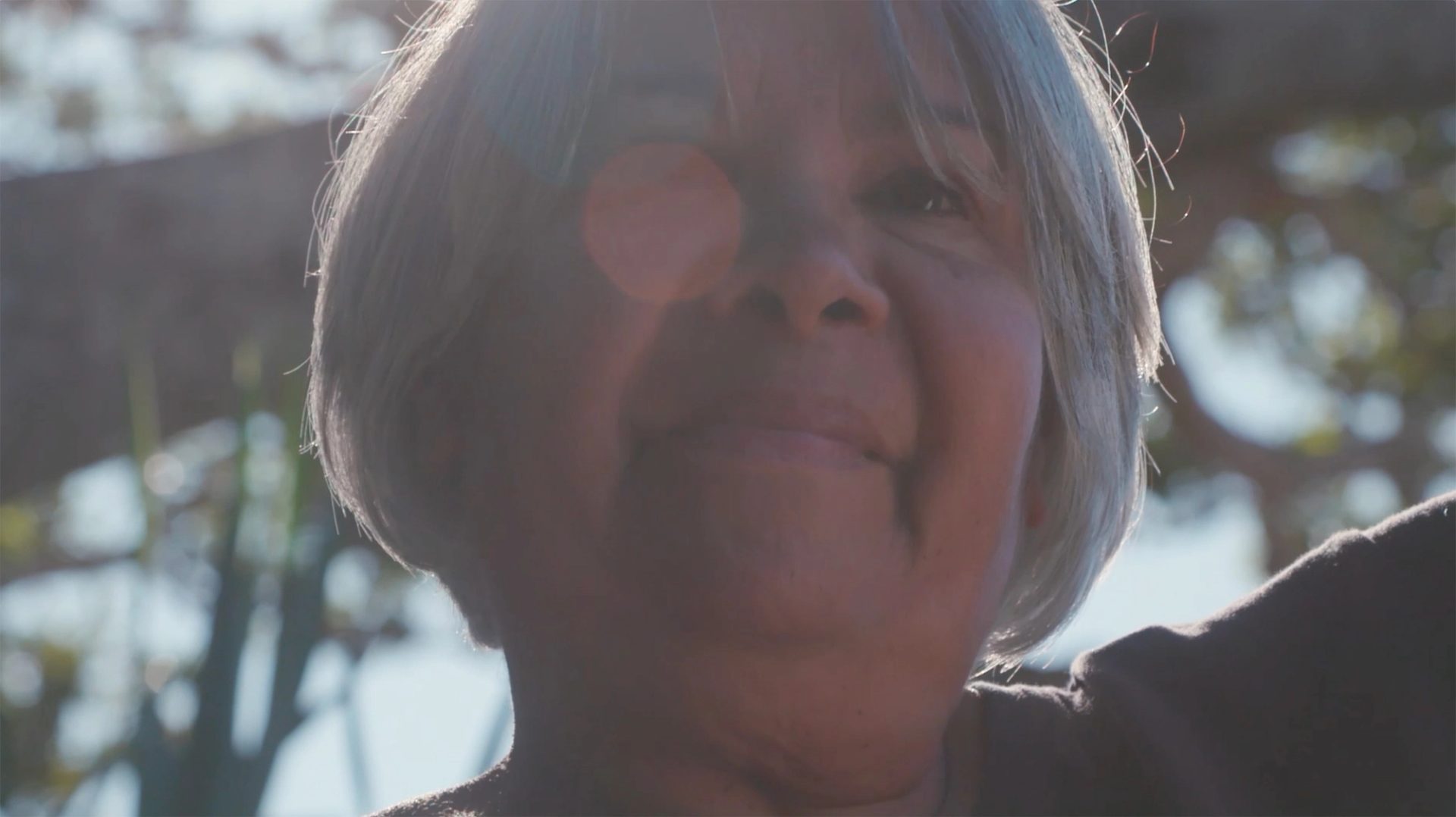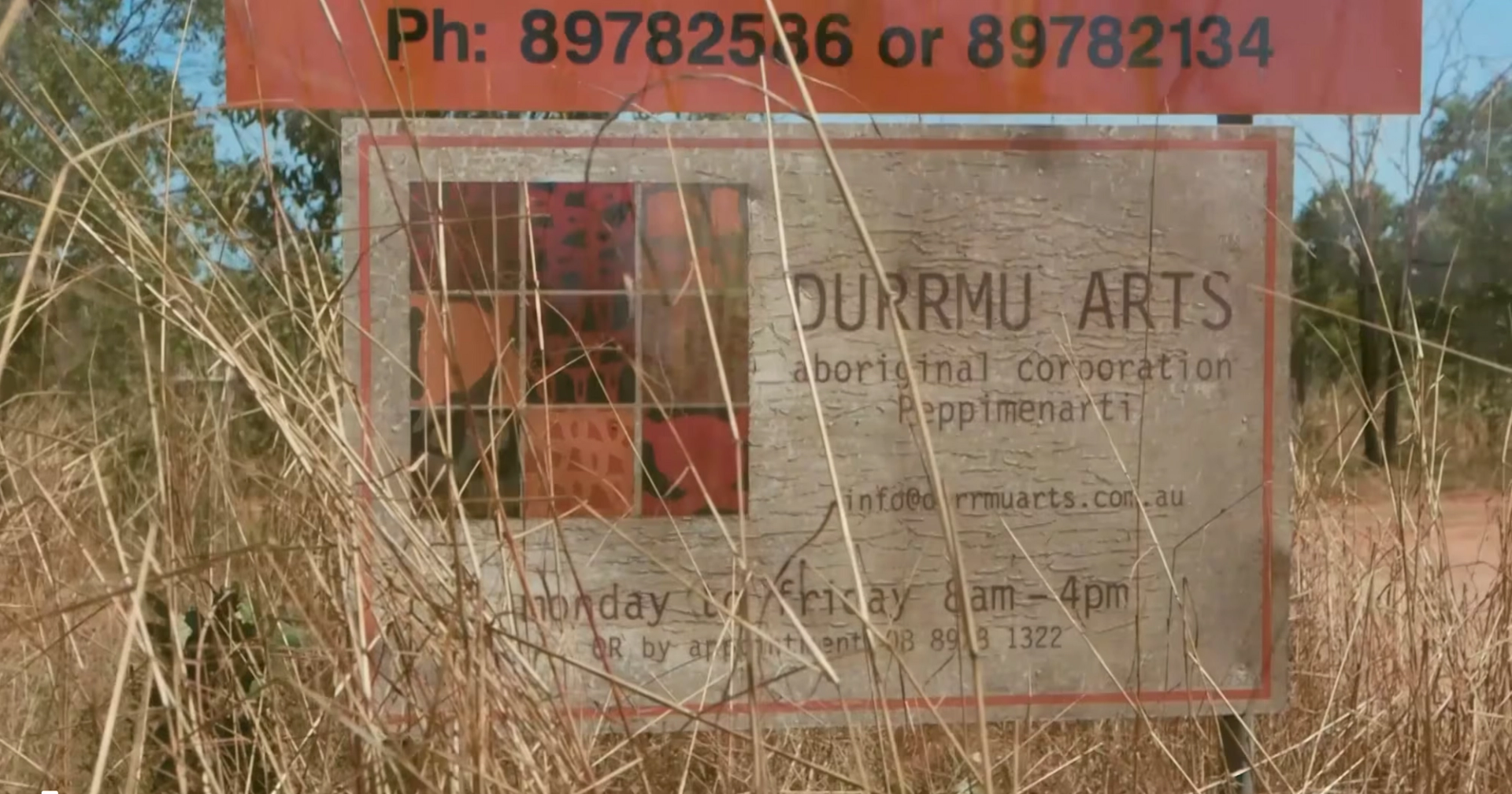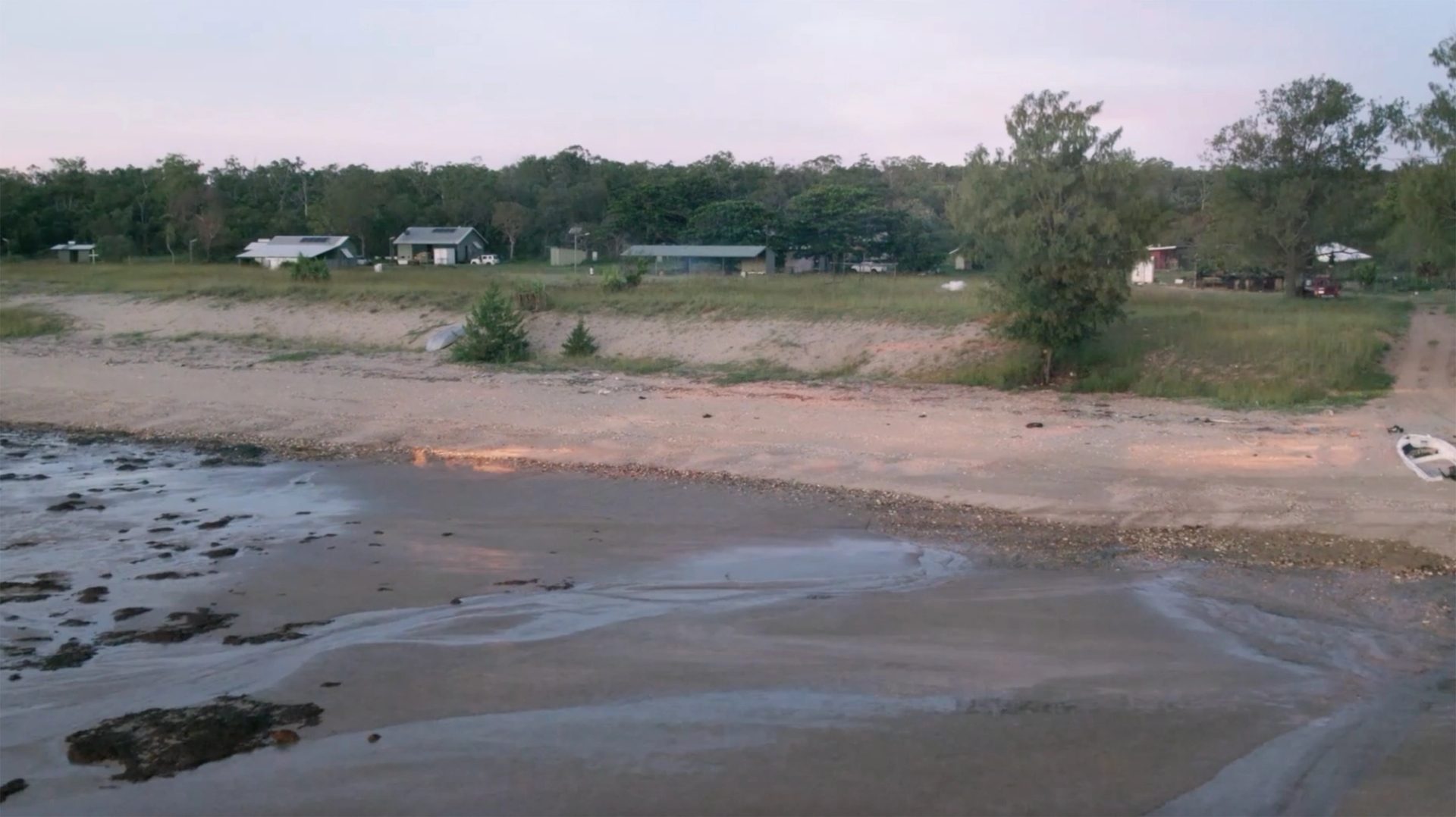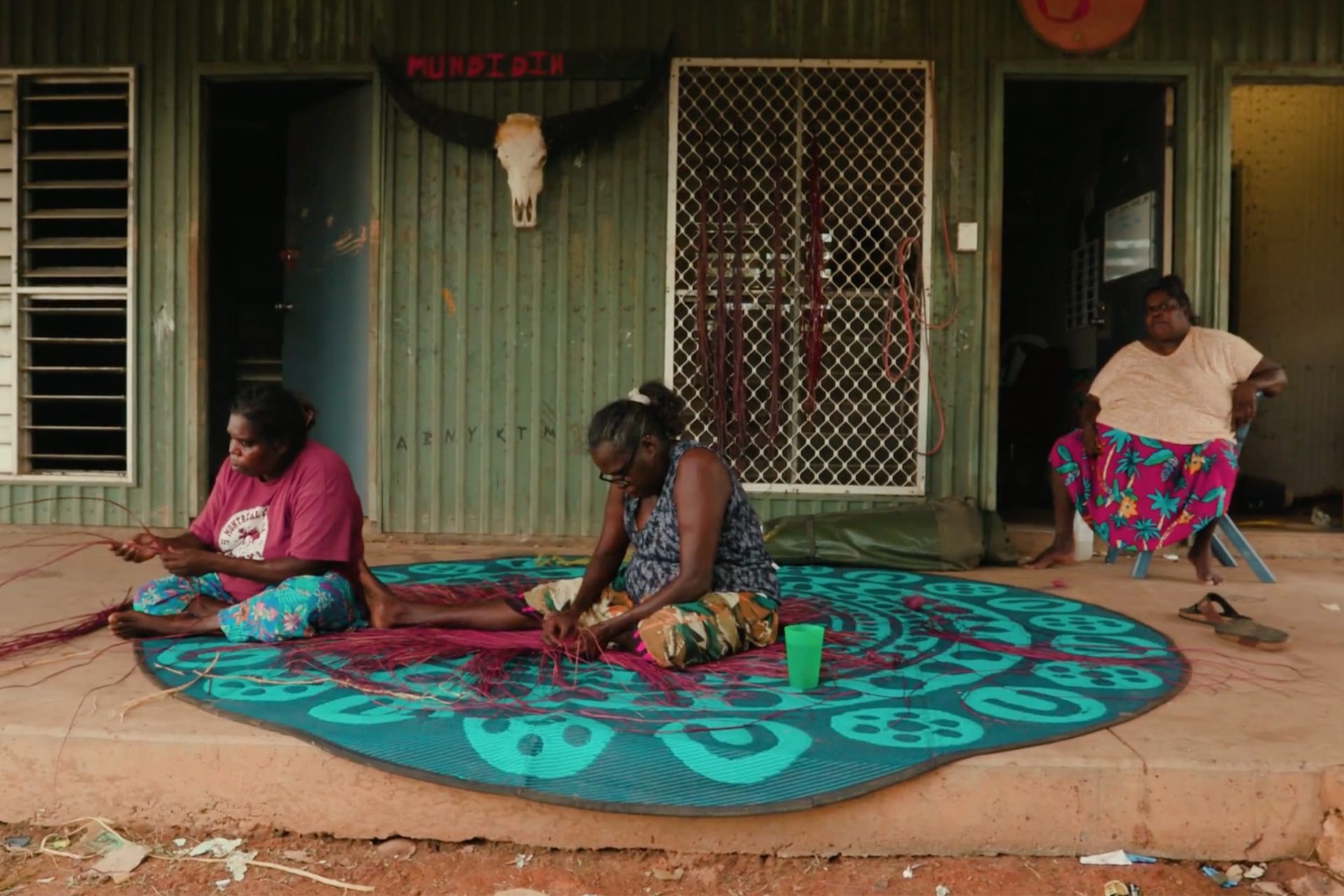Marrawuddi Arts and Culture

Coby Edgar reflects on her travels to Mamadewerre and Marrawuddi Arts and Culture with Tim Hillier and Miriam La Rosa, and time spent with artists on Country as they prepared for Alchemy.
‘Rosemary told me the stories of the marebu. The different patterns, weaves, stitches. She told me the story of her mother Janice Nabulwad starting the marebu and carting it to hospitals, on planes, to meetings and work. That marebu went everywhere with those women.’
Katie Hagebols, the Marrawuddi Arts and Culture centre manager, swung her 4WD into the Jabiru airport carpark with a beaming smile, furiously waving her hand in greeting. Miriam La Rosa from Agency, videographer Tim Hillier and I collectively sighed with relief, piled into the troopie and headed to our accommodation for the night. I weighed in again: 65 kg before this leg, 60 kg now. We’d spent seven hours that day stranded on Laŋarra Island, off the coast of Arnhem Land, waiting for missing airplane parts. We all showered off Laŋarra’s sand and dirt, a legacy that somehow managed to tan my skin a few shades darker, jumped back in the car and went to the local caravan park for a feed. We all ordered the wild-caught barramundi, chips and salad and a very cold and well-deserved beer. The barra was huge and delicious. I sent a picture to Mandi King, who’d been with us on the island but was now safely back in Milingimbi, to let her know we were alright too and on the next leg of our journey. She was outright jealous of the beer in hand. Most of the communities I travelled to are dry – no alcohol – so a beer, when it is available and it’s socially appropriate, is a nice way to end a long day. Especially after being stranded. Mandi went back to a dry community, so she didn’t get the stranded-and-saved beer that Tim, Miriam and I did. I ordered another one to have on her behalf.
